

List of Felon Friendly Countries
Are there any felon friendly countries? what are the best countries for ex felons? If you’re planning an overseas vacation or thinking about moving to another country for a fresh start, make sure your felony won’t ruin your plans. With 195 countries in the world, there’s a wide range of rules and regulations travelers need to follow.
- Many countries allow short-term visa-free entry to U.S. passport holders and don’t ask for traveler’s criminal background information.
- Some visa-free counties ask travelers to fill out an entry card on arrival and may ask about criminal convictions.
- Some visa-free countries require travelers to obtain an Electronic Travel Authorization (ETA) before traveling, which includes a criminal background check.
- For countries requiring a visa, your felony could block your visa approval, but that’s not always the case.
Always check with an official source before you make any firm plans. You’ll find information on entry and visa requirements on the government website of the country you plan to visit.
Felon Friendly Countries In Europe For Short-Term Visits

What countries can you travel to with a felony in Europe? For travel purposes, Europe is divided into two categories. Countries inside the Schengen Area and countries outside the zone.
The Schengen Area currently includes 27 countries. U.S. passport holders enjoy visa-free access to the Schengen Area. Once you’re inside the Schengen Area, you can travel across internal borders without further checks.
Felons can travel freely to any other country in the Schengen Area as long as the total length of stay in the Schengen Area doesn’t exceed 90 days.
European countries that allow felons ; The 27 European countries in the Schengen zone are:
- Czech Republic
- Lichtenstein
- Netherlands
- Switzerland
Currently, having a criminal record will not result in being refused entry to these countries unless your felony is on the Interpol database and you’re deemed a security risk. Border officials are unlikely to ask you about your criminal record upon your arrival.
In 2024, ETIAS, a new travel authorization system is due to come online. The ETIAS travel authorization is valid for 3 years and allows travel throughout the Schengen Area.
The online ETIAS application asks you to disclose criminal convictions within the last 10 years as part of the approval process.
While having a more recent felony doesn’t mean your ETIAS application will be refused, you won’t receive instant approval through the automated system.
Instead, your application will undergo a manual review. You’ll be contacted if ETIAS needs more information from you, otherwise, you’ll receive an approval or refusal within 96 hours.
ETIAS is concerned with keeping serious criminals who pose a security risk out of the Schengen Area. Most felons will still be able to travel to these European countries once ETIAS is active.
European countries outside the Schengen Area include Ireland, the United Kingdom, Gibraltar, Bulgaria, Romania, and Cyprus.
For short-term visits, felons shouldn’t have any trouble entering Ireland or the United Kingdom, and you’re unlikely to face questions about your criminal history.
Can Felons Obtain Visas For Longer Stays In Europe?

If you need to stay in a European country longer than 90 days or plan to work or study, you’ll need a visa.
Each country has its own requirements, but having a criminal record won’t necessarily mean your visa application will be denied.
The United Kingdom has a strict policy on criminal records for visa applicants. A visa will be refused if the applicant:
- Is the subject of a deportation order
- Served a prison sentence of at least 4 years for a single offense
- Served a prison sentence of between 12 months and 4 years, unless 10 years have passed since the completion of the sentence
- Served a prison sentence of less than 12 months, unless 5 years have passed since completion of the sentence.
Germany is another country with strict visa rules. Germany doesn’t issue visas to applicants with a felony for a public order offense resulting in a prison sentence of 3 or more years, or a drug offense resulting in a prison sentence of 2 or more years.
Check the visa requirements for the country you want to enter to find out if your felony and the age of your offense make you ineligible for a visa.
Countries Felons Can Visit Visa Free In the Rest of The World
What countries can felons travel to without applying for a visa? Your U.S. passport allows you to enjoy the freedom of visa-free travel to 148 nations. Because you don’t need to apply for a visa, you’re unlikely to face entry restrictions unless your felony has been entered into Interpol’s database.
- Some of these countries require travelers to obtain an Electronic Travel Approval in advance. ETA applications ask about criminal convictions, and you may be instructed to apply for a visitor visa because of your felony.
- Other countries on this list may ask you to fill out a landing or entry card. Depending on the country, you could be asked to disclose criminal convictions.
Keep in mind that some offenses are included on Interpol’s database which is accessible to immigration officials when they scan your passport.
Canada is the only country on the list below with direct access to the NCIC database which holds information about state and federal criminal offenses in the United States.
If you want to visit Canada, you’ll need to make special arrangements before you travel and you must meet certain conditions before you enter Canada (see below).
We’ve already covered visa-free travel to Europe, so here are the other countries you can visit without a visa for short trips.
- American Samoa
- Antigua and Barbuda
- Bosnia & Herzegovina
- British Virgin Islands
- Caribbean Netherlands
- Cayman Islands
- Central African Republic
- Cook Islands
- Dominican Republic
- El Salvador
- Falkland Islands
- Faroe Islands
- French Guiana
- French Polynesia
- French West Indies
- Marshall Islands
- New Caledonia
- New Zealand
- North Macedonia
- Northern Mariana Islands
- Philippines
- Puerto Rico
- São Tomé and Príncipe
- South Africa
- South Korea
- Saint Kitts and Nevis
- Saint Lucia
- Saint Martin
- Saint Vincent and the Grenadines
- Trinidad and Tobago
- Turks and Caicos Islands
- United States Virgin Islands
- United Arab Emirates
- Vatican City
If your trip isn’t eligible for visa-free travel, you’ll need to apply for a visa. Visa applications typically ask about criminal convictions and you may need to provide a police or court record to document your conviction and confirm you served your sentence.
Each country has its own rules on issuing visas to convicted criminals. Check the immigration website for the country concerned to find out which restrictions apply.
Traveling To Canada With A Felony
Canadian immigration officials have direct access to the National Crime Information Center (NCIC) database.
Any felon trying to enter Canada will be refused entry at the border. Felons must have prior entry approval from the Canadian government using one of the following methods.
- A Canada Temporary Resident Permit ( TRP ) allows entry for a specific period if you have a valid reason for traveling to Canada and meet the eligibility conditions.
- Canadian Criminal Rehabilitation is available to felons who completed all sentencing requirements at least five years earlier. Rehabilitation approval takes at least one year. Once you’ve been given confirmation of approval, you will no longer face any issues at the Canadian border because of your felony.
Countries That Don’t Allow Felons
The following countries don’t allow felons to visit for tourism or other purposes:
Other countries may refuse your visa application if you don’t meet their eligibility requirements.
Because U.S. passport holders enjoy visa-free travel to so many countries, there’s a good chance that you won’t be asked about your felony when you arrive in one of those countries.
Before you travel, check the government website of the country you want to visit to find out if you need to complete an entry card on arrival or obtain an ETA in advance.
These countries are more likely to ask about your criminal history, although they may only refuse entry for serious offenses.
If you’re traveling to a country that doesn’t offer visa-free travel, or you require a visa because of the length of your stay or the purpose of your trip, you should expect the visa application to ask about criminal convictions. Depending on the immigration policy, your felony may result in a visa refusal.
See Also: The Most Common Felonies .

Charles Greg is the Co-Founder, Author, & Head Developer behind RentingtoFelons.org With a lifelong passion for humanity.
This is a privately owned website and not a government agency. FTC Disclosure: We may be compensated if you make a purchase via a link on this site.
Uspassporthelpguide.com is a privately owned website. Privacy
Which Countries a Convicted Felon Can Visit With a Passport?
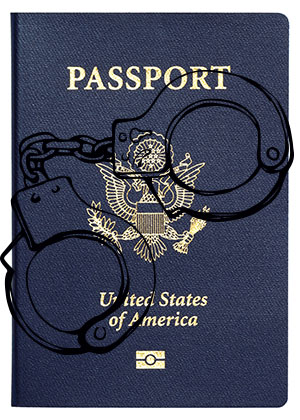
Some countries do not require a U.S. citizen to have a passport before entering. So, a convicted felon will not have a problem going to any of these countries. But there are plenty of countries that do require a passport and a visa. A convicted felon with a passport is not guaranteed entry when a visa is required.
TABLE OF CONTENTS
What Countries Can a Convicted Felon Travel to?
- Caribbean countries
- European countries
- South Africa
- Philippines
- United Arab Emirates
Remember that a valid passport is necessary, and the six-month passport validity rule applies for more information on travel restrictions for a convicted felon here .
Which Countries Denied Entry if You Have a Convicted Felony?
Visitors who are traveling to these countries below with a felon may be denied if they have a convicted felony.
- New Zealand
- United States
- United Kingdom
Which Countries Where Visas Are Required and Request Criminal Records?
Some countries that require a U.S. citizen to have a visa for entry may want you to get it before traveling or upon arrival. During the visa application, these countries will ask about your criminal history and may not issue a visa depending on the crime. Such countries are
With a felony conviction, you may be denied entry. Other nations that require a pre-entry visa are Brazil and India. The excellent news about Brazil and India, their visa application does not ask about a criminal record. So, a convicted felon can travel to these nations without fear of denying entry.
Where to Apply for a Visa?
Some countries have complicated visa processes. The best advice is to seek visa services to prevent any delays, especially if a visa is required in advance or even if you can get one at a port of entry. Getting one when you arrive can take time away from your trip. Also, as a felon, you do not want to be denied entry after making your trip.
Conclusion:
If you plan to visit any country that requires a visa for entry, apply at an embassy way in advice to prevent any disappointment. If a visa is only granted at the port of entry, it is best to ask an embassy if you will be denied entry based on your conviction before boarding your flight. It is necessary so that you can go to another country that may not need a visa to visit.
REAL ID & Driver’s Information
May 04, 2018., choose your passport office location, passport services.
- New Passport
- Passport Renewal
- Child Passport
- Passport Replacement
- Name Change
- Lost Passport
- Passport Correction
- Second Passport
- Passport Card
Where to Apply
- Passport Offices
- Expedited Services
- Regional Passport
- Expedited Visa & Passport Directory
- Acceptance Agent
Passport Forms
- Passport Photos
- Passport Requirements
- Passport Fees
- Passport Books
- Passport Applications
- International Drivers Permit
- Travel Visa
Do you really want to delete this post ?
Enter your search term
Search by title or post keyword
Can Felons Travel to Brazil?
Table of contents.
Our website is supported by our users. We sometimes earn affiliate links when you click through the affiliate links on our website
Watching TV one night this week, the Olympics were on. Viewing the Games, some felons may recall much earlier times in their lives when they were pursuing an athletic career.
While they may not have been at the same level with those Olympic athletes, they may remember fondly the passion they had for their particular sport.
As they watch the competition from their living room, some of them may wonder what it would be like to actually be there in Brazil to see the action live.
The question is whether or not they would have been able to travel to Brazil to watch the competition in person.
This blog post will cover the question of whether felons can travel to Brazil.
Can Felons Leave the Country?
Question of a visa, keeping the goal of traveling to brazil, encouraging felons in going to brazil.
Upon release, felons must complete the terms of their sentence, which typically involves being on probation, reporting to their probation officer in person or checking in online monthly.
During the probation period, felons are restricted from leaving the district in which they reside without permission from their probation officer.
Depending on felons’ circumstances, including the length of their criminal history, seriousness of their offense, and other factors, being granted permission to travel outside their district can be difficult to achieve.
Of course, travel outside the U.S. is out of the question until the conditions of probation have been satisfied entirely.
Once this is accomplished, the travel possibility increases.
Travel beyond the U.S. border can be accomplished.
There is the question of obtaining a passport , which is a form of identification from the federal government allowing international travel. Felons are able to obtain a passport.
Being convicted of drug trafficking or a crime of treason against the U.S. may prevent felons from being able to obtain a passport, as well as for anyone owing at least a certain amount of child support.
Having current legal charges pending can also prevent having a passport. This is because leaving the country will be interpreted as an unlawful attempt to avoid prosecution, which is itself a federal crime.
Traveling to another country with a passport is very possible.
Each country establishes and maintains its standards for who is allowed to cross their border.
In order to travel to Brazil, a visa is required due to the reciprocal rule Brazil has put in place. What this means is that basically, Brazil mirrors what the USA makes Brazilian citizens go through in order to enter the country.
If you’re in a hurry to get your visa or want someone to walk you through the process, we recommend you use this website to help.
If you’re simply looking to visit, look into getting a tourist visa to enter the country.
As long as felons present a valid passport and Visa, they will be allowed entry into the country.
Then there is a work visa that anyone coming to the country for business, educational, cultural, or artistic reasons.
Another category of visa that may be required is a permanent visa. This is a visa for persons intending to live in Brazil.
Those with a misdemeanor conviction are not considered to represent a potential danger to society. For them, obtaining a visa is not a problem.
According to the Brazilian government, crimes which may pose a problem for those seeking a visa, include, any resulting in a term of confinement or imprisonment.
These are such crimes as carrying weapons, robbery, murder, fraud, and drug trafficking.
Guidelines for felons wanting to obtain a visa, as long as they have fully served the complete terms of their conviction, state that obtaining a visa should not be difficult as long as this condition is met.
A criminal background check will be conducted on anyone who has served a prison term in the U.S.
However, there is no guarantee that felons with any of these or other serious crime on their record can get a visa.
So, it is actually in the best interest for felons wanting to travel to Brazil to have their record expunged before applying for a Brazilian visa to give themselves the best chance possible in being successful in being approved for that visa.
Working hard, getting a job , and additional education can all help in getting that felony off their record.
It is important for felons to not give up on traveling to a country such as Brazil following incarceration. Thinking back on their restrictive time in prison can prompt many felons to want to travel.
They may have even dreamed of the day when this would once again be possible. It is very important to not give up on those dreams, just as those Olympic athletes kept their dreams alive to reach the pinnacle in their sport.
Such dreams are an essential part of the rehabilitation process, the desire to live an honest life and to do the things that others without a felony conviction can do.
Travel outside of the U.S. is certainly an important part of this.
For families of felons who wish to travel to Brazil, it is important to encourage them to pursue this.
Don’t let them allow their mistakes from the past stop them from enjoying life again. Restrictions will be there regardless unless they have their record expunged .
Help them travel to Brazil, assist them in the process, and encourage them to obey the laws of Brazil when they are there. In case of legal difficulties, they can find a lawyer .
So what do you think about this blog post about whether felons can travel to Brazil? Have you or someone you know traveled to Brazil after a felony conviction? What was that experience like? Please tell us in the comments below.
After researching to assist a family member with finding work, Ron realized that the information he required wasn’t reliable.
Noticing a need in the market, Ron wrote and self-published Jobs For Felons – 1st Edition which has been shared at numerous inmate facilities and reentry programs across the nation.
Using what he learned in writing that text, Ron developed this website as a free resource and has worked with his team to continue answering questions for those in need.

5 thoughts on “Can Felons Travel to Brazil?”
No visa is required to visit Brazil. However, the U.S. Embassy shares traveler information and your felony will be discovered quickly. Most likely you will be stopped and denied entry at the airport. On the outside chance you get past immigration, Brazilian federal police will find you and send a team to arrest you with rifles. You will be removed, your belongings will not be brought with you, and you will be taken to the nearest international airport under immigration custody and deported. If you ever return, you will go to Prison. Generally, if you have a felony conviction, you are stuck in the U.S. until you die.
This one is a bit too legal for us to answer, Higgsb. But you can go to this resource to ask a lawyer directly: https://felonyrecordhub.mystagingwebsite.com/just-answer
I’m an American and I have have a job offer to work in Brazil. I have been in China for the past 2 years and I am applying for visa to Brazil from China. I was busted with some weed in China about 8 months – I only had to pay a fine but it’s on my police clearance.
What my chances of getting the work visa?
Thanks for the correction here, looks like some things may have changed since we first wrote the article. It has now been updated.
This article is incorrect. In order to visit Brasil, even for a trip of less than 90 days, a visa is required. And you have to get it prior to your trip (they don’t do airport visas). Don’t let this discourage you as Brasil is a beautiful country, but the article is not correct about the visa requirements (for Americans).
Leave a Comment Cancel reply
Save my name, email, and website in this browser for the next time I comment.
Explore More within Felony Record Hub
- Second Chances: Smart Money Moves forReintegrating Felons
- Is Stealing Mail a Felony? Learn the Truth and Avoid Legal Trouble
- Is leaving the scene of an accident a felony?

How we help
This website was created by a few folks who have personally watched their loved ones struggle to get a job due to having a felony .
Your New Life Starts Here.
- Jobs for Felons
Get to work faster with jobs for felons curated for you.
- Companies that Hire Felons
- Felon-Friendly Job Board
Housing for Felons
Find housing for felons, listed by state.
- Housing by State
The legal help you need to put your past behind you
- Basics and Definitions
- Criminal Charges
- Criminal Procedures
- Expungement
- Background Checks
Rights For Felons
Learn how you can get your rights back as a felon.
Companies Hiring Felons
Finding employment as a felon is tough. That’s why we have aggregated the best jobs for felons in one spot.
Reentry Programs
Resources to help ex-offenders gain essential life skills for making the right choices in life.
- Business Culture
- Questions & Answers
- Rio de Janeiro
- Florianópolis

Cynthia Fujikawa Nes
Co-Founder The Brazil Business
26 May 2016
Brazilian Visa with Criminal Record
Providing a background check might be required by some authorities in Brazil, specially during applications for visas. In this article we will learn more about the implications of having a criminal record, and its influences on getting a legal permanence in the country.
When do I need to present my criminal records?
Typically, tourists do not need to present a background check if their intention is to stay in Brazil for a maximum of 90 days. However, if the plan is to stay longer than this period, applying for a permanent or temporary visa , the authorities might ask for a criminal records certificate.
When applying for a visa in Brazil, as in many other countries, a foreigner must prove their previous good behavior, for the simple reason that no country in the world wants to shelter a criminal. Therefore, depending on its content, a criminal record will have significant importance in the process of getting a Brazilian visa.
Therefore, a criminal record certificate will be required to check if a foreigner has served or still has to serve a sentence in their country of origin. The document must be issued by the competent authority from the country/state/city police where the foreigner lived for the last 12 months, registered by a Brazilian consulate abroad, and then translated into Portuguese. Also, the original signed version by the city police administration is needed.
Normally, only crimes that were brought before a court will appear on the criminal record, which excludes police reports.
I have criminal records, now what?
Having a criminal record does not mean that you cannot apply for a visa in Brazil but, as the process of getting a visa is analysed case by case, it is difficult to forecast if a criminal record will invalidate your request for legal permission to stay in the country.
This does not cover the cases where people who did not serve their sentences and are trying to get a visa in Brazil. These people are either illegal immigrants and fugitives, so it is more than obvious that they cannot even apply for a visa. However, if a foreigner who violated the law in their country of origin and have already served their sentence there, then they have a clear criminal record, meaning that nothing should prevent them from getting their Brazilian visa.
What will determine if a criminal record will be taken into consideration is, of course, the seriousness of the offense committed. There are criminal offenses and criminal offenses. And particularly, in Brazil, the distinction between a felony and less severe crimes is kind of nonsensical in some cases. That is because the country’s Criminal Code dates back to 1940 and urges some revision, which is currently in discussion.
First, it is necessary to clear up the different categories of breaking the law, according to the Brazilian constitution . The introduction of the Criminal Code provides a great difference between:
- Crime: Defined as a violation of the law that culminates in a penalty of confinement or imprisonment. Some examples are carrying weapons, robbery, murder, fraud and drug trafficking
- Misdemeanor: Defined as a violation of the law designated as a lesser crime, punished with simple detention and a fine. Some examples are drunkenness, vandalism, juvenile delinquency, street fighting, slander, abuse, disturbance of the peace, persecution, threatening behaviour or in other ways violating third-party rights, refusal to submit documents to the authorities, playing games of chance and disobedience to authorities etc
As misdemeanors are criminal offenses that present no potential damage to society, criminal records of this kind will not interfere in the process of getting a visa in Brazil whatsoever if the person has already served their sentence.
When it comes to severe crimes, the situation gets complicated. Let us consider a person that committed a crime and already served their sentence abroad. As stated above, nothing should get in the way of an individual if they wants to get a visa in Brazil, because they have served their sentence.
However, some crimes appearing on a criminal record will be difficult or even make the process of getting certain kinds of visas in Brazil impossible. Normally, these are crimes that allow the country to expatriate the foreigner, such as rape, homicide, drug trafficking, smuggling etc. Good conduct in the past is a legal parameter to decide if the visa will be granted to the applicant.
If the person has already completed their sentence, the best alternative is to seek for expungement or apply for pardon in their country of origin, as an attempt to erase their criminal record. This is because a criminal record will not only cause problems with the visa application, but also with finding a job, issuing other documents in the country etc. Each country will have its limitations and policies for expungements and pardons.
It is important to note that if the person is on parole, it is international understanding that this person is restricted from everything, including applying for a visa, even though they have permission to remain free.
Requesting a Brazilian Criminal Record Certificate
If you have an RNE , you can obtain a Brazilian Criminal Record Certificate online directly on the Department of Federal Police website, clicking on " Antecedentes Criminais " (on the left menu), and then " Emissão ".
If the Criminal Record Certificate cannot be issued through the internet, the only alternative is to obtain it in Brazil, in person, by giving someone the power of attorney to represent you at a state Federal Police Department, also known as Departamento da Polícia Federal.
Certificates issued by the State authorities are valid throughout Brazil. A certificate issued in São Paulo, SP, for example, is valid in every state of Brazil.
Only people with citizenship in Brazil can issue a Brazilian criminal records certificate.

Allows felons
Denied If Discovered
Denied up front
Countries that Don't Allow Felons 2024
When preparing to visit (or immigrate to ) another country, one might have to go through the process of applying for a visa from the destination country. A visa is a document, usually stamped in a person’s passport, that gives that person official permission to enter a particular sovereign country. The process of applying for a visa varies from country to country. Some countries do not allow people who have a felony on their criminal records to obtain a visa, so they are unable to visit.
It is notable that the destination country may have different regulations regarding what constitutes a felony. This can impact the granting or denial of a visa. For example, a traveler from Australia hoping to visit China may have committed a criminal act that is considered a regular offense in Australia, but if China defines that same act as a felony, the Chinese government may still deny that visitor a visa.
In Australia, tourists who wish to visit but who have a criminal record must first apply for a visa. Certain offenses can generally disqualify someone from obtaining permission, but whether or not a visa is an issue is up to the discretion of the official reviewing the paperwork. If the offense occurred a long time in the past and the person has been in good standing since then, a visa may still be granted. However, if your crime resulted in a prison sentence of a year or longer, you will likely not be allowed to immigrate to Australia.
Canada reserves the right to refuse entrance to any would-be visitors who have a criminal history. This includes those who have committed felonies, primarily if the offense resulted in a 10-year prison sentence. However, if the person was officially pardoned or considered to be rehabilitated (according to the Canadian law definition of the term), they may still be allowed to enter the country. Similarly, people who wish to immigrate permanently are subject to extra scrutiny if they've committed crimes such as theft, assault, manslaughter, dangerous driving, DIU, or certain drug-related offenses. The potential immigrant must wait until five years after their sentence is completed and demonstrate to Canadian authorities that they've been reformed.
Japan allows visits of up to 90 days without a visa. However, a visa is required for a longer stay, and visitors who have been imprisoned for more than a year (or have a drug-related conviction) are likely to be denied a visa. Similarly, Japan has a zero-tolerance policy against immigrants with drug-related convictions.
New Zealand
Those wishing to immigrate to New Zealand must not have committed a crime that resulted in imprisonment in their original country of 12 months or longer within the past ten years. Those sentenced to five or more years in prison are also not allowed, no matter how long ago the sentence was handed down.
One must fill out a visa application and list any criminal convictions on the form to visit Russia. If severe enough, those convictions can disqualify someone from obtaining a visa.
United Kingdom
Visitors to the United Kingdom who have an American passport do not need to apply for a visa. However, for people with passports from a country for which the UK requires an advance visa, the government will conduct a background check. The permit may be declined if the officials reviewing the application believe that the person intends to commit harm while in the UK. Additionally, the immigration official at the border may refuse entrance.
United States
The United States may have the world's largest foreign-born population and attract immigrants from all over the globe , but that doesn't mean it lacks entry requirements. Those who have been convicted of offenses that would be defined as aggravated felonies in the United States—which is loosely defined as any offense that merited imprisonment for a year or longer in the person's home country—are unlikely to be granted entrance or permanent residency.
Countries that will deny entry to felons if discovered
Some countries have laws prohibiting people who've been convicted of a felony, but don't actively screen visitors' criminal records. In these countries, a person convicted of a felony may be allowed in on good faith, but kicked out if and when their criminal record is discovered.
- A criminal record will not result in an individual being refused entry to these countries unless that person's felony is entered into the Interpol database and they are deemed a security risk. Border officials are unlikely to ask about a person's criminal record upon their arrival.
Download Table Data
Enter your email below, and you'll receive this table's data in your inbox momentarily.
How many countries deny felons up front?
The names of 16 countries deny felons up front.
Which countries deny felons up front?
The following countries deny felons up front: Argentina , Australia , Canada , China , Cuba , India , Iran , Israel , Japan , Kenya , Macau , New Zealand , South Africa , Taiwan , United Kingdom and United States .
How many countries deny felons if discovered?
The names of 22 countries deny felons if discovered.
Which countries deny felons if discovered?
The following countries deny felons up front: Brazil , Cambodia , Chile , Dominican Republic , Egypt , Ethiopia , Hong Kong , Indonesia , Ireland , Malaysia , Mexico , Morocco , Nepal , Peru , Philippines , Singapore , South Korea , Tanzania , Tunisia , Turkey , Ukraine and United Arab Emirates .
Frequently Asked Questions
- List of Felon Friendly Countries - Renting To Felons
- Countries You Can’t Travel to With a Criminal Record - Visa Guide
- What Countries Don't Allow Felons - Info Tracer
- What Countries Will Not Let You Enter With a Felony - Legal Beagle
- Countries That Regulate the Immigration of Felons - Wiki

A List of Countries Convicted Felons Can Travel To (& Not)
Knowing which countries felons can travel to and not is important if you’re a convicted felon and you want to travel. To help you out, I’ve put together a complete list of countries with their rules and restrictions when it comes to letting criminals enter the country.
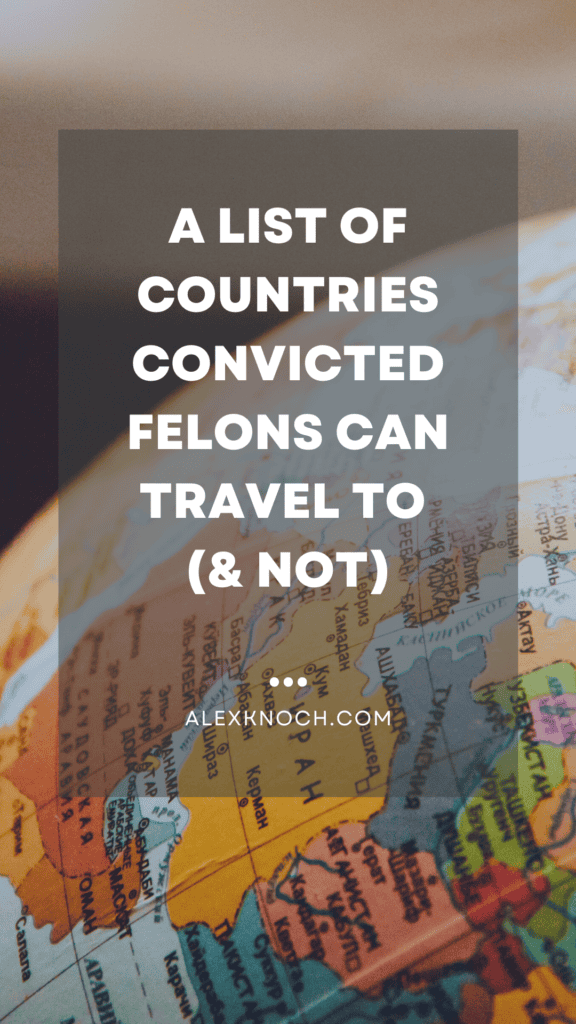
If I’ve missed something or if there’s something you like to add, let me know in the comments below.
Countries Felons Can Visit
You might be wondering, what countries a convicted felon can travel to? Felon friendly countries include:
Countries With No Visa Requirements
The following is a list of countries that don’t require a visa to visit so as long as you have a valid passport, they’ll let you in. However, some of these countries do have laws stating that they don’t allow felons so if it’s discovered you have a felon, however rare, you could be denied entry.
- Czech Republic
- Dominican Republic
- Liechtenstein
- Netherlands
- Philippines
- Switzerland
- South Korea
Countries Felons Might Be Able To Visit
- Japan has as a zero tolerance policy for those with drug convictions.
Countries That Don’t Allow Felons
The following list is of countries that don’t allow felons and will deny entry and/or visas upfront. Each country has its own definition of what crimes constitute denial so even if a country is on the list, you may still be able to get in.
- Australia denies anyone who has been sentenced to a prison term of 12 months or more.
- Canada denies anyone who has committed a non-summary offence unless they prove to the Canadian Minister of Immigration that they are rehabilitated.
- New Zealand denies anyone who, in the past 10 years, was convicted and sentenced to prison for 12 months or more, and permanently denies anyone who has been sentenced to prison for five years or more.
- South Africa
- The United Kingdom denies anyone who has been sentenced to prison for less than 12 months in the last 5 years, 1 to 4 years in the last 10 years, and permanently if you’ve spent more than 4 years in prison.
If you still need a passport, be sure to check out my post on passports for felons as there are certain restrictions you’ll have to follow before you can get one.
- Recent Posts
- What to Wear in Cancun by Month & Activity (And Not!) - March 13, 2023
- What to Wear in New York by Month & Activity (And Not!) - March 13, 2023
- What to Wear in Morocco by Month & Activity (And Not!) - March 13, 2023
Find Me Elsewhere:
Leave a reply cancel reply.
Your email address will not be published. Required fields are marked *
Save my name, email, and website in this browser for the next time I comment.

Can Felon’s Travel Outside the US: What Countries Can You Travel to with a Felony?
Yes, felons can travel outside the country because the law allows them to get a passport, the question is, what country are you traveling to – or intending to travel to? Below is what you need to know.
Quick take: Can felons travel outside the US?
- Felons can travel outside the country after completing their sentence or post prison sentence such as probation or electronic monitoring.
- The fifth amendment protects your right to travel.
- A felony conviction may disqualify you from getting a visa.
- If you have completed your sentence, you may apply for a passport.
- No visa countries only require a passport.
- There are less restrictions when you travel by sea.
- The country you are travelling to may deny you entry, so check the immigration and travel laws before purchasing ticket.
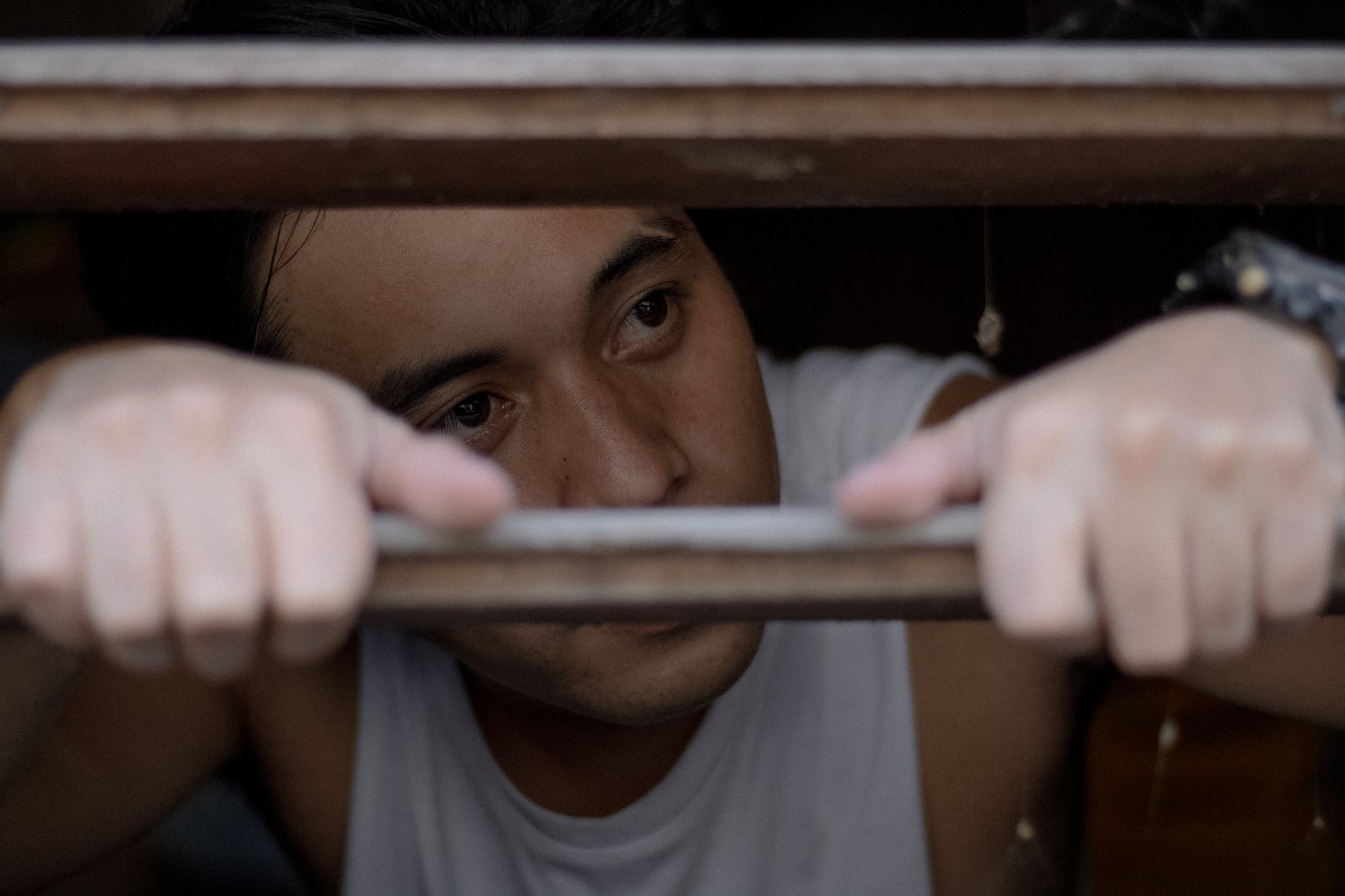
Can you travel with a felony record?
In the US, once a felon completes his sentence and there is no court order barring the convict from travel, that individual is free to travel outside the country. However, if you have a pending case or if you:
- Owe at least $25000 in back child support.
- On a supervised release program for committing a federal crime, felony, or possession of a controlled substance.
- The court forbade you from leaving the country.
- You have impending court hearings for a felony or federal crime.
- Convicted of drug trafficking.
The department of state may deny you a passport or exit from the country. That raises the question.
Are felons allowed to fly?
If you have completed your sentence, the law does not restrict you from traveling by plane or other means. Remember, your right to travel is protected under the fifth amendment. However, if you are a flight risk, or if there is a court order or warrant barring you from travel. Airport officials may confiscate your passport. If you are in a foreign country, you may be deported.
Can a felon travel outside the US without a passport?
Some countries do not ask US citizens to produce a visa, all they need is a passport. Why is this important? According to the US embassy. An individual who has been arrested, cautioned, or convicted of a criminal offense (anywhere in the world), must declare the conviction when applying for a visa.
If the crime happened within the shores of the United States, the embassy requires you to obtain a court record from the court in which you were tried. Note that the embassy can only issue a visa if the arrest did not result in a conviction. What the embassy wants from your record is. (1) to verify the nature of the offense (2) pending cases (3) penalty imposed.
Because of that, if trial resulted in a conviction, it is highly unlikely that you will get a visa to travel outside the US. Other embassies have similar requirements, so as a felon, getting a visa can be problematic.
Can you get a passport with a felony conviction in the US?
Yes. A felony conviction does not revoke your right to travel. Furthermore, a passport is an identifying document, meaning anyone can apply for one. To begin the process, you must complete a DS-11 Application for a passport .
To complete the form, you will need:
- Proof of citizenship
- Proof of identity
- A recent color photograph.
- You must pay an application fee.
Note that under 18. USC. 1001 and 18.USC 1542/ 18 USC.1621. Intentionally and willfully making false statements while applying for a visa, and alteration/mutilation of US passports -are crimes punishable by fines and or prison. Therefore, when applying for a passport, it is in your best interest to answer all questions truthfully.
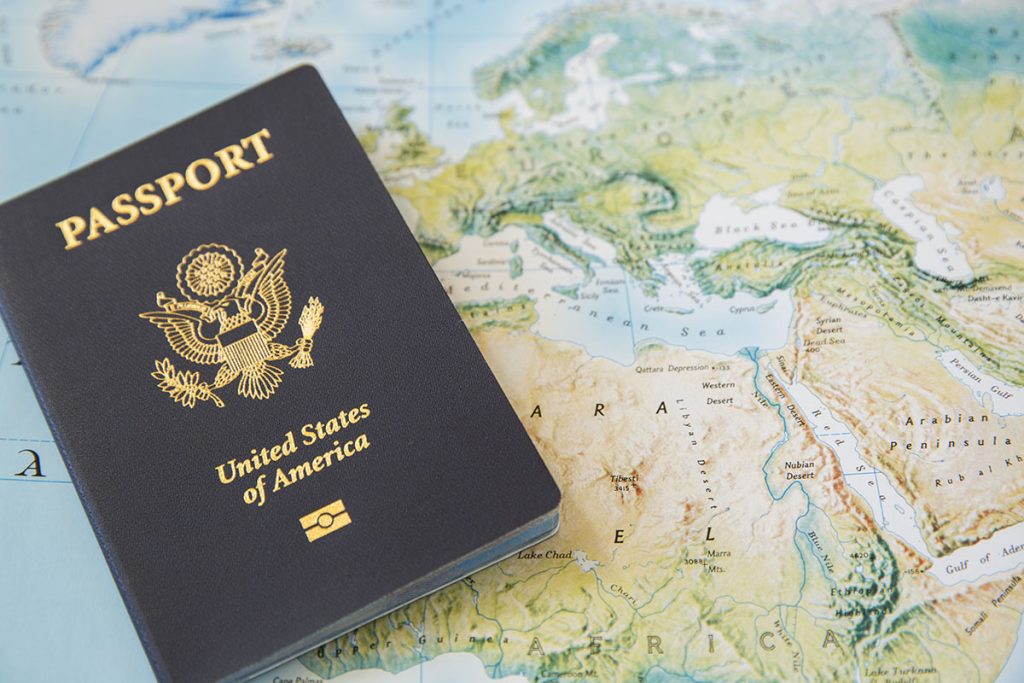
What felonies disqualify you from getting a passport?
The only crime that may disqualify you from getting a passport is a conviction for international drug trafficking.
Some countries allow US citizens to enter without a visa. Thus, if you are a felon and have a passport, you can enter the following countries.
Countries that do not require US citizens to produce a visa in 2021
According to worldpopulationreview , in 2021, US passport Visa-free Countries include:
- Bosnia and Herzegovina
- The British Virgin Islands
- Brunei Bulgaria
- Cayman island
- Czech Republic
See the full list in the link above.
Can US felons travel to Canada?
If you have completed your sentence, there are two ways to travel to Canada with a felony conviction. One is to apply for a Canada Temporary Resident Permit. Two, complete a Criminal Rehabilitation Form. A Temporary Resident Permit (TRP) allows the holder to visit Canada for a set amount of time. Meaning, you cannot use it to become a permanent resident.
To become a permanent resident or extend your stay in Canada you will need a Criminal Rehabilitation Form .
What to remember:
- You can only apply for criminal rehabilitation five years after finishing your sentence in the US.
- If you apply before the five-year waiting period, you will have to check “for information only.” It is then up to an officer to decide if you gain entry.
- You may find both applications at a Canadian embassy or download the forms via the links above.
- Temporary Residents Permit authorizes the holder and his/her family to enter Canada.
- Not complying with the terms of a TRP is a violation of Canada’s immigration and refugee protection act
- You may have to undergo a medical examination when applying for temporary or permanent residency.
- The passport expiry date may affect the length of time you can stay in the country.
- If you have a passport, Canada may deny you entry if you do not have approval for rehabilitation.
It is also worth noting that Americans traveling to Canada who intend to stay less than 180 days do not need visas according to the US Department of State-Bureau of Consular AFF .
Can felons travel to Europe or the UK?
Some countries in Europe have strict no-admission policies for individuals convicted of certain felonies or ones with criminal records. Furthermore, country immigration laws change almost daily. Because of that, before you make travel arrangements, it is vital to contact the embassy of the country you intend to visit.
The Schengen region of Europe , an area encompassing about 26 countries, including France, Germany, Greece, Denmark, and Estonia -have lenient immigration laws, meaning a record will not deny you entry. But again, check with the embassy before you board a plane or purchase tickets.
Remember, you may get into the country, but it is up to border patrol officials to decide if you can stay.
How do you enter the Schengen region?
If you are American, you do not need a visa to enter, all you need is your passport.
Can felons travel to Africa, Asia, and the middle east?
There are over fifty countries in Africa each with its own immigration laws, some laws are strict, and some are loose. For example, countries including South Africa, Senegal, Malawi, and Rwanda, do not require Americans to have a visa, whereas, you may need a visa to travel to Kenya and the other countries.
The majority of countries in Africa do not restrict felons from traveling there, instead, what they want to know is your reason for travel, how long you will be in the country, and where you want to go. what might restrict you from entry into African and Asian countries is if you are on TSA’s no-fly list or terror watch.
African countries that do not allow felons include: Nigeria, Ethiopia, Egypt, Congo, South Africa, Uganda, Sudan, Kenya, Angola, Ghana, Niger, Zambia, Morocco, and Malawi.
Asian countries that do not allow felons in 2021 include China, India, Indonesia, Bangladesh, the Philippines, Japan, Vietnam, Iran, Myanmar.
See the full list here.
Can felons travel via cruise ship?
Some cruise ships do not require passengers to carry a passport or Visa. Consequently, choosing to travel on a cruise ship or commercial ship is a great alternative to air travel because you may or may not need a visa to leave the ship when it docks.
Get your record expunged
In the US, certain felonies are eligible for expungement after the accused has completed the sentence. For example, if you were convicted of a felony when you were below 18 and have completed the sentence, you may petition the court to expunge your record. Expunging your record will shield you from country-imposed travel restrictions.
What happens if the court grants your expungement is the court deletes your record of conviction or arrest. Because of that, you will no longer be required to report your conviction while applying for a VISA, or work. In some states, juvenile records are sealed automatically, and in others, you must petition the court. Therefore, we recommend consulting with a criminal lawyer near you to find out if you are eligible.
Conclusion: Can felons travel outside the country?
As an American citizen, your right to travel is enshrined in the constitution. Because of that, if you do not have an impending case or if there are no warrants for your arrest, you may get a passport and travel.
However, it is up to the country you are traveling to decide if you can get in. so we recommend contacting the country’s embassy or checking the countries immigration laws.
No visa countries only require you to have a passport, making them easier for felons to enter. However, entering another country illegally is a crime that may land you in a foreign prison. So, we recommend using formal means. It is also worth noting that there are fewer checks when you travel by sea.
Yes, felons can travel outside the country because the law allows them to get a passport, the question is, what country are you traveling or intending to travel to? Below is what you need to know.
Quick take: can felons travel outside the US?
Cann you travel with a felony record?
Can a felon travel outside the us without a passport.
The only crime that may disqualify you from getting a passport is a conviction for international Drug trafficking.
The first step to getting your record expunged is completing probation, for help with that try the app Finish Probation to keep track of all your appointments.
Related : Can felons travel Australia Can felons travel Canada
Share this:
- Click to share on Facebook (Opens in new window)
- Click to share on Reddit (Opens in new window)
- Click to share on Twitter (Opens in new window)
- Click to share on WhatsApp (Opens in new window)
Leave a Comment Cancel reply
Notify me of follow-up comments by email.
Notify me of new posts by email.
Update May 10, 2024
Information for u.s. citizens in the middle east.
- Travel Advisories |
- Contact Us |
- MyTravelGov |
Find U.S. Embassies & Consulates
Travel.state.gov, congressional liaison, special issuance agency, u.s. passports, international travel, intercountry adoption, international parental child abduction, records and authentications, popular links, travel advisories, mytravelgov, stay connected, legal resources, legal information, info for u.s. law enforcement, replace or certify documents.
Before You Go
Learn About Your Destination
While Abroad
Emergencies
Share this page:
Travel Advisory October 19, 2023
Brazil - level 2: exercise increased caution.
Reissued with updates to Country Summary.
Exercise increased caution in Brazil due to crime . Some areas have increased risk. Read the entire Travel Advisory.
Do not travel to:
- Any areas within 150 km/100 miles of Brazil’s land borders with Venezuela, Colombia, Peru, Bolivia, Guyana, Suriname, French Guiana, and Paraguay due to crime . (Note: This does not apply to the Foz do Iguacu National Park or Pantanal National Park.)
- Informal housing developments (commonly referred to in Brazil as favelas, vilas, comunidades, and/or conglomerados) at any time of day due to crime (see additional information below).
- Brasilia’s administrative regions (commonly known as “satellite cities”) of Ceilandia, Santa Maria, Sao Sebastiao, and Paranoa during non-daylight hours due to crime (see additional information below).
Country Summary: Violent crime, such as murder, armed robbery, and carjacking, is common in urban areas, day and night. Gang activity and organized crime is widespread. Assaults, including with sedatives and drugs placed in drinks, are common. U.S. government personnel are discouraged from using municipal buses in all parts of Brazil due to an elevated risk of robbery and assault at any time of day, and especially at night.
If you decide to travel to Brazil:
- Be aware of your surroundings.
- Do not physically resist any robbery attempt.
- Do not accept food or drinks from strangers.
- Use caution when walking or driving at night.
- Avoid going to bars or nightclubs alone.
- Avoid walking on beaches after dark.
- Do not display signs of wealth, such as wearing expensive watches or jewelry.
- Be extra vigilant when visiting banks or ATMs.
- Use caution at, or going to, major transportation centers or on public transportation, especially at night. Passengers face an elevated risk of robbery or assault using public, municipal bus transportation throughout Brazil.
- Use increased caution when hiking in isolated areas.
- Enroll in the Smart Traveler Enrollment Program (STEP) to receive Alerts and make it easier to locate you in an emergency.
- Follow the Department of State on Facebook and Twitter .
- Review the Country Security Report for Brazil.
- Prepare a contingency plan for emergency situations. Review the Traveler’s Checklist .
- Visit the CDC page for the latest Travel Health Information related to your travel.
International Borders – Level 4: Do Not Travel
U.S. government personnel are not permitted to travel to areas within 150 km/100 miles of the international land borders with Venezuela, Colombia, Peru, Bolivia, Guyana, Suriname, French Guiana, and Paraguay without advance approval from security officials due to crime. Travel to the Foz do Iguacu National Park and Pantanal National Park is permitted.
Visit our website for Travel to High-Risk Areas .
Informal Housing Developments (commonly known as “Favelas”) – Level 4: Do Not Travel
Do not travel to informal housing developments (commonly referred to in Brazil as favelas, vilas, comunidades, and/or conglomerados), even on a guided tour. Neither the tour companies nor the police can guarantee your safety when entering these communities. Even in these communities that the police or local governments deem safe, the situation can change quickly and without notice. While some informal housing developments have clear boundaries or gates, or even names such as “favela”, “vila”, “comunidade”, or “conglomerado”, other such developments may be less obvious, and may be identified by crowded quarters, poorer conditions, and/or irregular construction. In addition, exercise caution in areas surrounding these communities, as occasionally, inter-gang fighting and confrontations with police move beyond the confines of these communities. Except under limited circumstances and with advance approval, U.S. government personnel are not permitted to enter any informal housing developments in Brazil. Read the Safety and Security Section on the country information page and consult the maps on the Embassy’s website for further information regarding favelas.
Visit our website for Travel High-Risk Areas .
Brasilia’s Administrative Regions (commonly known as “Satellite Cities”) – Level 4: Do Not Travel
Without advance approval from security officials, U.S. government personnel are not permitted to travel to Brasilia’s Administrative Regions of Ceilandia, Santa Maria, Sao Sebastiao, and Paranoa between the hours of 6:00 p.m. and 6:00 a.m. (non-daylight hours) due to crime.
Embassy Messages
View Alerts and Messages Archive
Quick Facts
Must be valid on the date of entry
One page required for entry stamp
Yes, beginning April 10, 2025
None required, but see Health section
More than 10,000 BR must be declared to Customs
Embassies and Consulates
U.S. Embassy Brasilia SES 801- Avenida das Nacoes, Lote 03 70403-900 - Brasilia, DF Brazil Telephone: 011-55-61-3312-7000 Emergency After-Hours Telephone: 011-55-61-3312-7400 Fax: (61) 3312-7651 Email: [email protected]
Embassy Branch Office in Belo Horizonte Avenida do Contorno, 4520 / 2nd floor – Funcionários 30110-028 Belo Horizonte, MG – Brazil Telephone: +55 (31) 3338-4000 E-mail: [email protected] Emergency After-Hours Telephone: Please contact the U.S. Embassy in Brasilia
Consular Agency in Brasilia’s Consular District Manaus Consular Agency Edificio Atrium, Suite 306 Rua Franco de Sá, 310 69.079-210 Manaus, AM Brazil Telephone: 011-55-92-3611-3333 Emergency After-Hours Telephone: Please contact the U.S. Embassy in Brasilia
U.S. Consulate General Porto Alegre Avenida Assis Brasil, 1889 Passo d' Areia 91010-004 - Porto Alegre, RS Brazil Telephone: 011-55-51-3345-6000 Email: [email protected]
U.S. Consulate General Recife Rua Goncalves Maia, 163, Boa Vista 50070-125 - Recife, PE Brazil Telephone: 011-55-81-3416-3050 or 011-55-81-3416-3080 Emergency After-Hours Telephone: 011-55-81-3416-3060 or 011-55-81-9916-9470 Email: [email protected]
Consular Agency in Recife’s Consular District U.S. Consular Agency Fortaleza Avenida Santos Dumont 2828, Aldeota, Suite 708 60150-162- Fortaleza, CE Brazil Telephone: 011-55-85-3223-4902 Emergency After-Hours Telephone: Please contact the U.S. Consulate General in Recife
U.S. Consulate General Rio de Janeiro Avenida Presidente Wilson, 147, Castelo 20030-020, Rio de Janeiro, RJ Brazil Telephone: 011-55-213823-2000 Emergency After-Hours Telephone: 011-55-21-3823-2029 Email: [email protected]
Consular Agency in Rio de Janeiro’s Consular District U.S. Consular Agency Salvador da Bahia Avenida Tancredo Neves, 1632, Caminho das Arvores Salvador Trade Center-Torre Sul, Room 1401 41820-020 - Salvador, Bahia Brazil Telephone: 011-55-71-3113-2090/2091/2092 Emergency After-Hours Telephone: Please contact the U.S. Consulate General in Rio de Janeiro: (21) 3823-2029
U.S. Consulate General Sao Paulo Rua Henri Dunant, 500 Chacara Santo Antonio 04709-110 - Sao Paulo, SP Brazil Telephone: 011-55-11-3250-5000 Emergency After-Hours Telephone: 011-55-11-3250-5373 Email: [email protected]
Destination Description
See the Department of State’s Fact Sheet on Brazil for information on U.S.-Brazil relations.
Entry, Exit and Visa Requirements
There are no COVID-related entry requirements for U.S. citizens.
Effective midnight on April 10, 2025 , a visa will be required for U.S. citizens to travel to Brazil, regardless of the purpose of travel. For more information about visa requirements, visit the Brazilian government-authorized website, https://brazil.vfsevisa.com
You will need:
- A valid U.S. passport.
- A valid Brazilian visa or e-visa, beginning April 10, 2025 for tourists and currently for all other types of travel.
- Visit the Brazilian government-authorized website to obtain your e-visa: https://brazil.vfsevisa.com
Find a Brazilian consulate abroad .
Brazilian law requires any minor who is a Brazilian citizen (even dual nationals who are both U.S. and Brazilian citizens) to have permission from each parent to travel within Brazil or exit the country. When a minor travels with both parents, no written authorization is needed. When the minor travels with only one parent or without either parent, s/he must have two original written authorization letters from each absent parent and carry a copy* of the child’s birth certificate or have an annotation in his/her Brazilian passport authorizing travel alone or with only one parent. Brazilian citizen minors without authorization letters and a birth certificate* or an annotated Brazilian passport likely will not be allowed by authorities to pass through immigration or to board a flight departing Brazil.
The U.S. Embassy and its consulates cannot intervene in Brazilian immigration matters or request that this requirement be waived for U.S. citizen travelers.
Written Authorization Letter: If the absent parent is in Brazil, written authorization letters must be in Portuguese and notarized by a Brazilian notary. If the absent parent is in the United States or elsewhere outside of Brazil, the authorization must be done at the nearest Brazilian Embassy or Consulate using the form provided by that office. Again, please note that Brazilian law requires two original authorizations for each absent parent. This is important, because Federal Police may request and retain one authorization upon the minor’s entry into Brazil. Authorities may then request the second original document upon the minor’s departure. Authorizations written in English or executed before a U.S. (or any non-Brazilian) notary public are not accepted by the Brazilian Federal Police. Similarly, birth certificates issued outside of Brazil that are not apostilled * and translated by a certified translator may not be accepted.
Brazilian Passport Annotation: In lieu of carrying authorization letters, parents of dual U.S.-Brazilian citizen minors may instead request an annotation be placed in the minor’s Brazilian passport authorizing the minor to travel with only one parent, or to travel alone or with a third party. This annotation replaces the requirement for written authorization letters until the passport expires. Parents residing in Brazil should contact the Brazilian Federal Police for details on obtaining an annotated passport. Parents residing abroad should contact the nearest Brazilian Embassy or Consulate. The annotated Brazilian passport must not be expired and must be carried along with the minor’s U.S. passport at all times for Brazilian Federal Police to accept it in lieu of an authorization letter. There is no comparable annotation available in U.S. passports.
Children who are not dual citizens of Brazil: Please note that, while Brazilian law related to travel authorization does not explicitly apply to non-citizens of Brazil, Federal Police have, at times, delayed the travel of non-Brazilian minors who lack appropriate authorization from both parents. For this reason, we recommend that families of non-Brazilian minors who may travel through Brazil without one or both parents execute written authorizations (following the instructions in the preceding paragraph) in advance of travel and ensure that the minor, or the minor’s traveling companion, carries the original or notarized copy** of the minor’s birth certificate.
An exemplar of the form used by Brazilian authorities to document parental permission for minors to travel without one or both parents may be found here.
*There is a useful pamphlet published by the Hague Conference called “ The ABCs of Apostilles .” The Brazilian competent authority that issues apostilles is the Conselho Nacional de Justiça .
**If the birth certificate was issued in Brazil, copies must be notarized by a Brazilian notary. If issued outside of Brazil, copies must be apostilled and translated by a certified translator into Portuguese.
HIV/AIDS Restrictions: The U.S. Department of State is unaware of any HIV/AIDS entry restrictions for visitors to or foreign residents of Brazil.
Find information on dual nationality , prevention of international child abduction , and customs regulations on our websites.
Safety and Security
Crime: The violent crime rate is high in most Brazilian urban centers. Public transportation, hotel sectors, and tourist areas report high crime rates, but these incidents can happen anywhere and at any time. Be aware of your surroundings.
- Informal housing developments in Brazil (commonly referred to in Brazil as favelas, vilas, comunidades, and/or satellite cities), even on a guided tour, at any time of day due to crime. Neither the tour companies nor the police can guarantee your safety when entering these areas. Even in favelas that the police or local governments deem safe, the situation can change quickly and without notice. In addition, exercise caution in areas surrounding favelas, as occasionally, inter-gang fighting and confrontations with police move beyond the confines of these communities.
- Brasilia’s administrative regions (commonly known as “satellite cities”) of Ceilandia, Santa Maria, Sao Sebastiao, and Paranoa during non-daylight hours due to crime.
- Any areas within 150 km of Brazil’s land borders with Venezuela, Colombia, Peru, Bolivia, Guyana, Suriname, French Guiana, and Paraguay due to crime. (Note: This does not apply to the Foz do Iguacu National Park or Pantanal National Park.)
- Consider avoiding the use of public, municipal buses in Brazil at any time of day, and especially at night. Crime trends indicate an elevated risk of robbery or assault on public bus systems throughout Brazil. The U.S. government recommends against personnel using public, municipal buses in all parts of Brazil.
- Avoid going to bars or nightclubs alone and avoid leaving with strangers.
- Before going on a date with someone you met on a dating app, tell a loved one who you are meeting, where you are going, and the details of the dating application account.
- Be wary about inviting individuals to your residence. If inviting a new acquaintance to your residence, speak to your door attendant in advance about your invited guest.
- Trust your instincts – if something does not feel right or if you suddenly feel ill, walk away from the situation.
- If you believe you may have been drugged, seek immediate medical attention. Some people can have life-threatening reactions to these drugs. After that, report the crime to local police and contact us at the numbers listed below.
- Traveling Outside Metropolitan Areas After Dark: Travelers are encouraged to organize their trips so that they can travel during daylight hours. Road conditions throughout Brazil can vary widely, and travelers must exercise caution due to debris in the road, horse-drawn carriages, unmarked speed bumps, and other infrastructure deficiencies.
- Armed hold-ups of pedestrians and motorists can happen, including at or near public beaches. Personal belongings, left unattended even for a moment, are often taken. If you are robbed, hand over your personal belongings without resisting. Resisting will increase your risk of injury.
- Carjackings and hold-ups can occur at any time of the day or night, especially at intersections and in tunnels. Some robberies involve individuals robbed at gunpoint and taken to make purchases or to withdraw as much money as possible from one or more ATMs.
- Crime on public transportation occurs. Registered taxis have red license plates and openly display company information and phone numbers.
- Credit card fraud and ATM scams are common in Brazil. Work closely with your financial institutions to monitor accounts and keep your credit card in view while it is scanned at a point of sale.
- Avoid using ATMs in unfamiliar, secluded, or lightly protected areas. Be aware that criminals often target ATMs and businesses in the early hours of the morning when there are fewer witnesses and law enforcement response times may be delayed. If you opt to use an ATM, select those that are located inside of secure facilities, such as an airport, hospital, bank, or government building.
- Avoid openly displaying your cell phone. When using a ride share service or taxi, wait for its arrival in a secure area.
- Avoid large groups or events where crowds have gathered. Public events of any nature, including concerts and sporting events, can unexpectedly turn violent.
- Travel to any areas within 150 km of the international borders with Venezuela, Colombia, Peru, Bolivia, Guyana, Suriname, French Guiana, and Paraguay, except in limited circumstances with the appropriate U.S. Department of State approvals. Individuals with ties to illegal criminal networks operate along Brazilian borders. Travel to the Foz do Iguaçu National Park and Pantanal National Park is permitted.
- Enter any informal housing developments in Brazil (commonly referred to in Brazil as favelas, vilas, comunidades, and/or satellite cities), except in limited circumstances with the appropriate approvals.
- Enter Brasilia’s administrative regions (commonly known as “satellite cities”) of Ceilandia, Santa Maria, Sao Sebastiao, and Paranoa during non-daylight hours.
To reduce the chance of becoming the victim of a crime, in addition to the above recommendations, please review the below precautions:
- Limit the personal belongings you carry with you. Carry your money in your front pockets and limit the number of credit cards you carry. Make copies of all of your personal documents – including your credit cards, license, passport, etc. – and keep them in a safe place. This will be helpful if you lose your documents.
- Do not carry or wear valuable items that will attract the attention of thieves. If you need to wear expensive jewelry or carry a camera, conceal it until you arrive at your destination.
- Be aware of the street environment and avoid contact with those who may be looking for robbery targets. Seek a safer location. Go into a store, bank, or simply cross the street.
- Do not walk on beaches after dark. Assaults are common.
- Use increased caution when hiking in isolated areas, particularly near popular tourist locations in the city of Rio de Janeiro.
Demonstrations and strikes are common in urban areas, may occur unexpectedly, disrupt transportation, and may escalate into violence.
- Even demonstrations intended to be peaceful can turn confrontational and possibly become violent.
- Avoid areas around protests and demonstrations.
- Check local media for updates and traffic advisories.
- Check the website of the Embassy or Consulate nearest you for current information on demonstrations.
International Financial Scams: See the Department of State and the FBI pages for information.
Victims of Crime:
U.S. citizen victims of crime should contact the local authorities to file a Brazilian police report before departing Brazil. In most instances, you can report crimes to the tourist or civil police. U.S. citizens should also inform the nearest U.S. Embassy or Consulate, but local authorities are responsible for investigating and prosecuting the crime.
- Police number - 190
- the U.S. Embassy at 011-55-61-3312-7000
- the U.S. Consulate General in Porto Alegre at 011-55-51-3345-6000
- the U.S. Consulate General in Recife at 011-55-81-3416-3050 or 011-55-81-3416-3080
- the U.S. Consulate General in Rio de Janeiro at 011-55-21-3823-2000
- the U.S. Consulate General in Sao Paulo at 011-55-11-3250-5000
See our webpage on help for U.S. victims of crime overseas .
- Replace a lost or stolen passport
- Contact relatives or friends with your written consent
- Help you find appropriate medical care
- Assist you in reporting a crime to the police
- Provide an emergency loan for repatriation to the United States and/or limited medical support in cases of destitution
- Help you find accommodation and arrange flights home
- Provide information on victims' compensation programs in the U.S .
- Provide a list of local lawyers who speak English
The local equivalent to the “911” emergency line in Brazil is divided among four services:
- 190 - Policia (Police)
- 191 - Policia Rodoviaria (on interstate roads)
- 192 - Ambulancia (Ambulance)
- 193 - Bombeiros (Fire Department)
Victims of Domestic Violence or Sexual Assault: Contact the nearest Embassy or Consulate for assistance after contacting local authorities.
Tourism: The tourism industry is unevenly regulated, and safety inspections for equipment and facilities are inconsistent. Inquire with property management about the presence and functionality of safety equipment, such as fire alarms and carbon monoxide detectors. Hazardous areas/activities are normally identified with appropriate signage in major urban centers but may not be in other locations. Tourism industry staff may not be trained or certified either by the host government or by recognized authorities in the field. In the event of an injury, appropriate and timely medical treatment is consistently available only in or near major cities. First responders can face delays accessing areas outside of major cities to quickly provide urgent medical treatment. U.S. citizens are encouraged to purchase medical evacuation insurance. See our webpage for more information on insurance providers for overseas coverage
Local Laws & Special Circumstances
Criminal Penalties: You are subject to local laws. If you violate local laws, even unknowingly, you may be expelled, arrested, or imprisoned. Individuals establishing a business or practicing a profession that requires additional permits or licensing should seek information from the competent local authorities, prior to practicing or operating a business.
Furthermore, some laws are also prosecutable in the United States, regardless of local law. For examples, see our website on crimes against minors abroad and the Department of Justice website.
Arrest Notification: If you are arrested or detained, ask police or prison officials to notify the U.S. Embassy or Consulate immediately. See our webpage for further information.
Firearms: Brazil forbids importing, exporting, and possessing firearms without prior authorization of the Brazilian Government. U.S. citizens are subject to arrest and prosecution in Brazil for possession of unauthorized firearms or firearm components anywhere in the country, including airports. This prohibition extends to spent shell casings or ammunition, even if inside luggage during transit, regardless of whether those items were legally purchased in the United States or elsewhere.
Counterfeit and Pirated Goods: Although counterfeit and pirated goods are prevalent in many countries, they may still be illegal according to local laws. You may also pay fines or have to give them up if you bring them back to the United States. See the U.S. Department of Justice website for more information.
Water Hazards: Many of Brazil’s beaches have very dangerous riptides, even if the water looks safe. Ocean currents and waves are unpredictable, even in popular beaches frequented by tourists. Shark attacks are reported in the waters of some beaches in northeastern Brazil, particularly near Recife. Always observe posted warnings and never swim while under the influence of alcohol. Follow local authorities’ guidance and refrain from swimming alone in areas marked with red warning signs or at beaches where there are no municipal lifeguards or first responder services.
Electricity Blackouts: Power failures in large urban centers are common and sometimes followed by increased crime. Most tourist hotels are equipped with generators, minimizing the impact of a blackout, but you should remain cautious.
Natural Disasters: Flooding and mudslides occur throughout the country and can be fatal. Monitor news and weather reports and adhere to municipal advisories before traveling to areas prone to flooding or landslides. Many of Brazil’s larger cities have frequent heavy rainstorms that cause flash flooding and can disrupt traffic.
Customs Restrictions : Contact the Brazilian Embassy in Washington, D.C. or one of Brazil's consulates in the United States for specific information regarding import and export regulations. Please also refer to our information on customs regulations .
- Brazilian customs authorities may enforce strict regulations concerning temporarily importing or exporting items such as firearms, antiquities, mineral samples, tropical plants, wildlife, medications, and business and communication equipment.
- In the Amazon region, there is special scrutiny of exporting biological material. People raising, growing, or exporting biological materials without permits can be charged with “biopiracy.”
Faith-Based Travelers: See our following webpages for details:
- Faith-Based Travel Information
- International Religious Freedom Report – see country reports
- Human Rights Report – see country reports
- Hajj Fact Sheet for Travelers
- Best Practices for Volunteering Abroad
LGBTI Travelers: Brazil does not have legal restrictions on same-sex marriage, relations, or events coordinated by LGBTI organizations. However, according to the 2019 Human Rights Report, violence against lesbian, gay, bisexual, transgender, and intersex (LGBTI) individuals was a serious concern, with local NGOs reporting 297 LGBTI persons were victims of hate killings. See our LGBTI Travel Information page and section 6 of our Human Rights report for further details.
Travelers Who Require Accessibility Assistance: Brazilian law prohibits discrimination against persons with physical and mental disabilities in employment, education, and access to health care. However, accessibility to public transportation and the ability to accommodate the needs of physically disabled persons are limited in most areas.
Students: See our Students Abroad page and FBI travel tips .
Women Travelers: See our travel tips for Women Travelers .
COVID-19 Testing: Brazil is a very large, diverse country with varying medical resources, both private and public, throughout the country. Many private labs perform COVID-19 testing at various prices, typically between $20 and $100. PCR, serology-based antibody tests, and antigen tests are available. Turn-around time varies widely depending upon location. Please verify turn-around time with your chosen lab before taking the test. Express results within 2-4 hours are available in many locations at an increased fee, including in the Guarulhos International Airport in São Paulo and Galeão International Airport in Rio de Janeiro. Testing is available in the private sector without a doctor’s prescription, but a prescription may be required for insurance payment.
In the public healthcare system, each Brazilian state has its own COVID-19 testing plan. We recommend that you contact local/state authorities for more information. Typically, a COVID-19 test is ordered by an emergency room physician and then sent to a public lab. Turnaround time is much slower and can take up to seven days, but tests are generally free. Information on testing sites and procedures is available through the official app of the Ministry of Health.
COVID-19 Vaccines: The COVID-19 vaccine is available for U.S. citizens to receive in Brazil once they register with the public Unified Health System (SUS) . According to the Ministry of Health, available vaccines include AstraZeneca/Oxford (Fiocruz), CoronaVac (Butantan), Janssen (Johnson & Johnson), and Pfizer (BioNTech). For more information on local availability of COVID-19 vaccines, please see the Brazilian Ministry of Health’s website and also contact local health authorities .
For emergency services in Brazil, dial 192.
Ambulance services are not present throughout the country or are unreliable in most areas except in state capitals and other large cities.
We do not pay medical bills. Be aware that U.S. Medicare/Medicaid does not apply overseas. Most hospitals and doctors overseas do not accept U.S. health insurance.
Medical Insurance: Make sure your health insurance plan provides coverage overseas. Most care providers overseas only accept cash payments. See our webpage for more information on overseas insurance coverage. Visit the U.S. Centers for Disease Control and Prevention for more information on type of insurance you should consider before you travel overseas.
We strongly recommend supplemental insurance to cover medical evacuation.
If traveling with prescription medication, check with the Government of Brazil to ensure the medication is legal in Brazil. Always carry your prescription medication in original packaging, along with your doctor’s prescription.
Vaccinations: Be up-to-date on all vaccinations recommended by the U.S. Centers for Disease Control and Prevention.
Though the yellow fever vaccine is not required to enter Brazil, travelers wishing to be vaccinated should consider receiving it prior to travel, as local supplies are limited. Please note that the yellow fever vaccine should be administered ten days prior to travel for it to be effective.
Also note that, while yellow fever vaccine is not required to enter Brazil, some neighboring countries (French Guiana, Suriname, Guyana, Bolivia, and Paraguay) do require travelers with recent entries in Brazil to show proof of yellow fever vaccination.
All travelers to the country are advised to carry documentation, such as a vaccination card, that they have been appropriately vaccinated for yellow fever.
The following diseases are prevalent in Brazil:
- Chikungunya
- Leishmaniasis
- Travelers' diarrhea
- Tuberculosis
- Schistosomiasis
In recent years, outbreaks of these diseases have also been detected in certain areas of Brazil:
- Yellow fever
Elective Surgery : Although Brazil has many elective/cosmetic surgery facilities that are on par with those found in the United States, the quality of care varies widely. If you plan to undergo surgery in Brazil, make sure that emergency medical facilities are available and professionals are accredited and qualified. Some “boutique” plastic surgery operations offer luxurious facilities but are not hospitals and are unable to handle emergencies.
Visit the U.S. Centers for Disease Control and Prevention website for information on Medical Tourism, the risks of medical tourism, and what you can do to prepare before traveling to Brazil.
Non-traditional Medicine: Several U.S. citizens have died while seeking medical care from non-traditional “healers” and practitioners in Brazil. Ensure you have access to licensed emergency medical facilities if seeking such services.
Further health information:
- World Health Organization
- U.S. Centers for Disease Control and Prevention (CDC)

Travel and Transportation
Public Transportation: Consider avoiding the use of public, municipal buses in Brazil at any time of day, and especially at night. Crime trends indicate an elevated risk of robbery or assault on public bus systems throughout Brazil. The U.S. government recommends against personnel using public, municipal buses in all parts of Brazil.
Public buses are one of the main modes of inter-city road travel. Buses can range (depending on route and price) from luxurious and well-maintained to basic and mechanically unsound. Bus hijacking can occur at random.
Road Conditions and Safety: Driving on Brazil's roads poses significant risks. Poor driving skills, bad roads, and high-density traffic make road travel more hazardous than in the United States. Road maintenance is inadequate in many areas and some long-distance roads through the Amazon forest are impassable much of the year due to flooding.
Apart from toll roads, which generally have their own services, roadside assistance is available only sporadically and informally through local mechanics. The fastest way to summon assistance in an emergency anywhere in the country is to dial 193, a universal number staffed by local fire departments. This service is in Portuguese only.
Traffic Laws: Travelers planning on staying for more than 180 days should obtain an Inter-American Driving Permit to carry with their valid U.S. license if they plan to drive in Brazil. Such permits can be obtained through AAA or other sources. Please note:
- Everyone in the vehicle must wear a seatbelt. Brazilian federal law requires child seats for all children under the age of 7 ½. From age 7 ½ years to 10, children must only ride in the back seat.
- Drivers must yield the right of way to cars on their right. Compliance with stop signs is rarely enforced, so many motorists treat them as yield signs. It is common for drivers to turn or cross one or more lanes of traffic without warning.
- Drivers often flash their lights or wave their hand out the window to signal other drivers to slow down.
- Pedestrian crossings are only observed in some places, such as Brasilia.
- Drivers must have their daytime running lights on during the day and headlights on at night on Federal Highways.
- Under Brazil’s Lei Seca (“Dry Law”), you cannot operate a vehicle with any measurable blood-alcohol level. Checkpoints are often set up in urban areas, and randomly chosen drivers are required to perform a breathalyzer test. Those in violation are subject to legal penalties and having their vehicle impounded.
See our Road Safety page for more information. Visit the website of Brazil’s national tourist office and national authority responsible for road safety .
Aviation Safety Oversight: The U.S. Federal Aviation Administration (FAA) has assessed the government of Brazil’s Civil Aviation Authority as being in compliance with International Civil Aviation Organization (ICAO) aviation safety standards for oversight of Brazil’s air carrier operations. Further information may be found on the FAA’s safety assessment page .
Maritime Travel: Mariners planning travel to Brazil should also check for U.S. maritime advisories and alerts . Information may also be posted to the U.S. Coast Guard homeport website , and the NGA broadcast warnings .
For additional travel information
- Enroll in the Smart Traveler Enrollment Program (STEP) to receive security messages and make it easier to locate you in an emergency.
- Call us in Washington, D.C. at 1-888-407-4747 (toll-free in the United States and Canada) or 1-202-501-4444 (from all other countries) from 8:00 a.m. to 8:00 p.m., Eastern Standard Time, Monday through Friday (except U.S. federal holidays).
- See the State Department’s travel website for the Worldwide Caution and Travel Advisories .
- Follow us on Twitter and Facebook .
- See traveling safely abroad for useful travel tips.
Brazil was cited in the State Department’s 2022 Annual Report to Congress on International Child Abduction for demonstrating a pattern of non-compliance with respect to international parental child abduction. Review information about International Parental Child Abduction in Brazil . For additional IPCA-related information, please see the International Child Abduction Prevention and Return Act ( ICAPRA ) report.
Travel Advisory Levels
Assistance for u.s. citizens, learn about your destination, enroll in step.

Subscribe to get up-to-date safety and security information and help us reach you in an emergency abroad.
Recommended Web Browsers: Microsoft Edge or Google Chrome.
Make two copies of all of your travel documents in case of emergency, and leave one with a trusted friend or relative.
Afghanistan
Antigua and Barbuda
Bonaire, Sint Eustatius, and Saba
Bosnia and Herzegovina
British Virgin Islands
Burkina Faso
Burma (Myanmar)
Cayman Islands
Central African Republic
Cote d Ivoire
Curaçao
Czech Republic
Democratic Republic of the Congo
Dominican Republic
El Salvador
Equatorial Guinea
Eswatini (Swaziland)
Falkland Islands
France (includes Monaco)
French Guiana
French Polynesia
French West Indies
Guadeloupe, Martinique, Saint Martin, and Saint Barthélemy (French West Indies)
Guinea-Bissau
Isle of Man
Israel, The West Bank and Gaza
Liechtenstein
Marshall Islands
Netherlands
New Caledonia
New Zealand
North Korea (Democratic People's Republic of Korea)
Papua New Guinea
Philippines
Republic of North Macedonia
Republic of the Congo
Saint Kitts and Nevis
Saint Lucia
Saint Vincent and the Grenadines
Sao Tome and Principe
Saudi Arabia
Sierra Leone
Sint Maarten
Solomon Islands
South Africa
South Korea
South Sudan
Switzerland
The Bahamas
Timor-Leste
Trinidad and Tobago
Turkmenistan
Turks and Caicos Islands
United Arab Emirates
United Kingdom
Vatican City (Holy See)
External Link
You are about to leave travel.state.gov for an external website that is not maintained by the U.S. Department of State.
Links to external websites are provided as a convenience and should not be construed as an endorsement by the U.S. Department of State of the views or products contained therein. If you wish to remain on travel.state.gov, click the "cancel" message.
You are about to visit:

Navigating International Travel After A Felony Conviction: What You Need to Know.
Americans impacted by felony convictions can travel to foreign counties, but the logistics can be complicated. There are a number of factors that will be taken into consideration: Your ability to obtain a passport; The country you intend to visit and do they require a US citizen to obtain a visa; The type of crime you were convicted of; and, The length of your sentence.
For our purposes here, the term “visa” excludes short-term “visitor visas” of ninety days or less. Most every country that lets you in will stamp your passport with a short-term “visitor visa” or similar indicator.
Most, but not all, convicted felons can eventually obtain a passport. In fact, if you have a passport and are involved in the criminal justice system, you need not turn it over to law enforcement unless you are ordered to do so by the court (please note that such court orders happen very frequently). Also, if you have served your time in custody and are on federal supervised release or state parole, it would be wise to discuss your plans with your probation/parole officer well in advance.
Upon application, the State department will scrutinize your background if you have a criminal record, but the limitations for granting or renewing a passport are narrow. If you have been convicted for international drug trafficking you cannot get a passport until your full sentence has expired, and if you have been convicted of a violent, or sex offense, you are unlikely to get a passport at all.
If you will be doing a lot of traveling, the State Department offers a U.S. passport card, a scannable supplement to a passport, which can get you through border security more quickly.
Once you have your passport, how about leaving the country? Some countries require you to obtain a visa for any length of stay, even stays of less than 90 days. However, many of the countries Americans choose to visit do not require visas at all.
Let’s look at the countries that physically border America.
Mexico does not require a visa; however, the government may deny entry to persons convicted of “serious” offenses which include armed robbery, drug trafficking and sex offenses. Mexico also requires documentation of your motor vehicle if you are driving. The Mexican border patrol will want to see your vehicle registration or a document, obtainable on-line from a Mexican consulate, attesting that you will not try to sell your car in Mexico.
Canada is one of the hardest countries for justice impacted Americans to enter. It is difficult for Americans with any kind of conviction or arrest to enter the True North. This applies especially to persons convicted of driving while intoxicated or reckless driving at any level.
Recently, Canada has somewhat relaxed its requirements, and the government will issue a certificate of “rehabilitation” to qualifying persons. Many immigration attorneys advertise their ability to assist the penitent in getting this certificate, but it will cost you. If you are wondering how the eagle-eyed Canadian border patrol can spot your complicated past, the U.S. and Canada share national crime databases. Border officers can check your background instantly.
The nations of the West Indies are easy to visit (except for Cuba, of course.) To the best of my knowledge, none of them require visitor visas or check for criminal records. The importance of tourism to these happy islands supersedes mulling over the checkers in your past. In the case of this Connecticut justice impacted person, I received my new passport, with the endorsement of my state parole officer, before my sentence was over so my fiancée and I could honeymoon in Jamaica.
Brazil and India make no inquiry into a traveler’s criminal past. You may plan to go to carnival in Rio or Diwali in Mumbai without a hassle. Japan officially does not allow persons with a felony record into their country but, unlike Canada, they have no reciprocal checks of American records. Likewise, African countries do not restrict entry to Americans with criminal records but have varying visa policies.
Another form of travel that many people enjoy is cruising. In general, cruise lines do not restrict justice-impacted persons from being passengers. However, Disney and some other cruise lines reserve the right to refuse passage to persons with criminal records. You should also be aware of the restrictions in counties where the ship docks. (Again, this is generally not a problem in the West Indies.)
Traveling to Great Britain is somewhat like Canada. British law forbids convicted felons from entering the country. However, many immigration attorneys claim that they can obtain waivers from this restriction. Also, the “immigration document” that you fill out before passing through British customs (usually on the plane before landing) does not ask about your history. So, you may slip through.
Other countries in Europe are part of a treaty called the Schengen Agreement 1 . Schengen Zone countries currently have visa-free arrangements for travel from the United States. Individual countries also have additional rules for the justice impacted, basically for persons who have served sentences longer than three years.
Beginning in January 2024 Schengen will require visitors to fill out a registration form on-line prior to entering the zone and pay an $8.00 fee. This is a new policy called ETIAS, European Travel Information and Authorization. The final details of the form have not been made public, so it is not known if this will affect the treatment of justice-impacted individuals. Several countries in Eastern Europe are not part of Schengen and have varied policies on entry.
As a practical matter, if you have a criminal history, it would be prudent for you to check with the consulate of any country you intend to visit before buying your ticket. Nothing could be worse than to be denied entry and then spend the night at a foreign airport waiting to take an unscheduled flight home.
A prepared traveler is a happy traveler. Bon voyage!
- The current Schengen countries are as follows: Austria, Belgium, Croatia, Czech Republic, Denmark, Estonia, Finland, France, Germany, Greece, Hungary, Iceland, Italy, Latvia, Liechtenstein, Lithuania, Luxembourg, Malta, Netherlands, Norway, Poland, Portugal, Slovakia, Slovenia, Spain Sweden and Switzerland
Thomas U. Gage is a member of the Ministry’s White Collar Support Group that meets every Monday evening on Zoom.

- Search For Felon Friendly Jobs
- Upwork Review
- Amazon Mechanical Turks
- Website Testing Jobs
- Web Search Evaluation Jobs
- Temp Agencies That Hire Felons
- Job Tips for Felons
- Self Employment Info
- Felon Friendly States
- High Paying Jobs for Felons
- Truck Driver Career Info
- Loans & Grants For Felons
- Pell Grants for Felons
- Pell Grants For INMATES ONLY
- Fast Money Ideas
- Public Housing Information
- Why Enter a Program
- Food Stamp Info for Felons
- Health Insurance For Felons
- Renters Insurance
- Life Insurance
- Homeowners Insurance For Felons
- Small Business Insurance
- Recommended Books
- Felony Expungement
- Plea Bargains: The Biggest Scam
- Can A Felon Go To A Shooting Range?
- Can a felon own a bow?
- Can a Felon Own a Crossbow?
- Can a Felon Get a Passport?
- Can a Felon Go to Canada?
- Can a Felon Go On Cruise?
- Felony Arraignment Info
- Is a DUI a Felony or Misdemeanor?
- 14 Things Only Felons Know
- Top Ten Most Successful Felons
- Employer Job Submission
- Submit a Program
- Submit An Article
- Job Lead Submision
International Travel Law for Felons

Our organization, Help For Felons specializes in gathering the most up to date information regarding international travel for felons. This page is updated regularly with new articles about travel restrictions, changing laws and anything else travel related. Being a felon means that you need to pay close attention to not only US law but also any other countries laws that you may travel to.

- Find a Lawyer
- Legal Topics
- Immigration Law
- Traveling Outside the U.S. with a Criminal Ba...
Traveling Outside the U.S. with a Criminal Background
(This may not be the same place you live)
Can You Travel Outside of the U.S. with a Criminal Background?
Whether or not you can travel outside of the U.S. with a criminal background will depend on the country you wish to visit, the nature of your criminal record, and the severity of your offense. Generally speaking, most countries have their own laws and regulations regarding entry and immigration, and it is up to their discretion to decide who they allow into their country.
If you plan on traveling with a misdemeanor record, you may still be able to go to some countries, especially those that do not have strict immigration policies. However, some countries may deny entry to people with a criminal background, particularly for serious or violent offenses.
Even if you are able to travel to another country with a criminal background, you may still face additional scrutiny and restrictions during the immigration process, such as additional questioning or searches.
If you are planning to travel outside of the U.S. with a criminal background, first research the specific entry requirements for the country you plan to visit and speak with an immigration lawyer if necessary.
Additionally, you may want to apply for a travel waiver or visa, increasing your chances of being granted entry into certain countries.
What Are Some Effects of Having a Criminal Record?
What about traveling as a u.s. citizen, what about traveling as a non-u.s. citizen, how can i avoid difficulties when traveling, what else should i know about traveling with a criminal background, can i obtain a passport with a criminal record, can i travel outside of the u.s. if my record was expunged, how can an immigration lawyer help.
Having a criminal record can have significant and long-lasting effects on your life, including your employment opportunities, housing options, and even your ability to travel outside of the country.
Here are some specific effects of having a criminal record, particularly for felonies , DUI charges , and unpaid child support :
- Travel restrictions: A criminal record can limit your ability to travel outside the country, particularly for felony offenses and DUI charges. Some countries may deny entry to people with certain criminal convictions or may require additional documentation, such as a travel waiver or visa, which can be difficult to obtain.
- Employment opportunities: People with a criminal record may have difficulty finding employment, particularly in fields that require background checks, such as healthcare, education, and finance. Some employers may have policies that automatically disqualify people with certain types of criminal convictions.
- Housing options: Landlords and property managers may also conduct background checks on potential tenants and may be hesitant to rent to people with a criminal record, particularly for felony offenses.
- Financial impacts: Unpaid child support can result in a criminal record and can have significant financial impacts, including wage garnishments, tax refund intercepts, and even arrest warrants.
- Personal relationships: Having a criminal record can also impact your personal relationships, as some people may be hesitant to associate with people who have been convicted of a crime.
Having a criminal record can have long-lasting effects on your life, and it is crucial to understand the potential consequences of criminal convictions. If possible, seek legal advice to explore your options for reducing or expunging a criminal record.
As a U.S. citizen, you have the right to travel within the country and to most international destinations. However, having a criminal record can impact your ability to travel to some countries, particularly for felony offenses and DUI charges.
Some countries have strict immigration policies and may deny entry to people with certain criminal convictions, while others may require additional documentation, such as a travel waiver or visa. You should research the specific entry requirements for the country you want to visit and speak with an immigration lawyer if necessary.
For non-U.S. citizens, having a criminal background can significantly impact their ability to travel, particularly if they are not citizens of the country where the offense was committed.
Many countries have strict immigration policies that may deny entry to people with criminal convictions, even for minor offenses.
Additionally, some countries may require a visa or other documentation for entry, which may be hard to obtain for people with a criminal record.
Research the specific entry requirements for the country you wish to visit and consult with an immigration lawyer. In some cases, obtaining a waiver or pardon may be possible to overcome the criminal inadmissibility grounds and gain entry into the country.
Here are some tips to help you avoid difficulties when traveling with a criminal background:
- Research entry requirements: Before booking your trip, research the entry requirements for the country you want to visit. Some countries have strict immigration policies and deny entry to people with criminal convictions. If you are unsure about the requirements in the country you are planning to visit, speak with an immigration lawyer.
- Obtain necessary documentation: If additional documentation, such as a travel waiver or visa, is required, make sure to obtain it well in advance of your travel dates.
- Disclose your criminal record: Be honest when filling out travel forms and disclosing your criminal record. Failing to disclose your criminal record can result in a denied entry or even further criminal charges.
- Plan for additional screening: If you have a criminal record, plan for additional screening and questioning during the immigration process. Try your best to stay calm and answer all questions truthfully.
Other legal issues to consider when traveling with a criminal background include the possibility of an immigration hearing , depending on the country you are planning on visiting. An immigration hearing may be required if you have been denied entry or if the immigration authorities have questions about your criminal history.
If an immigration hearing is required, contact an immigration lawyer to talk about your rights and options.
The answer is generally yes. However, there are some circumstances where a passport may be denied or revoked, such as for certain felony convictions or outstanding child support payments. Check with the U.S. Department of State for more information on passport eligibility requirements.
If your criminal record has been expunged or sealed, it may still impact your ability to travel outside of the U.S., depending on the country you are planning to visit. Some countries still consider the expungement or sealing of your record in their immigration decisions.
For this reason, you should research the specific entry requirements for the country you wish to visit before making any definite plans and consult with an immigration lawyer if necessary.
If you have concerns about traveling outside of the U.S. with a criminal background, you should talk to an immigration lawyer .
An immigration lawyer can help you research the specific entry requirements for the country you want to visit and advise you on any legal issues you may face. They can also help you prepare the necessary documentation and represent you in an immigration hearing if required.
Don’t hesitate to seek legal guidance from an experienced immigration lawyer to ensure a smooth travel experience outside of the United States. Use LegalMatch’s online attorney-client matching system to help you find the right immigration lawyer for all of your international travel needs today.
Save Time and Money - Speak With a Lawyer Right Away
- Buy one 30-minute consultation call or subscribe for unlimited calls
- Subscription includes access to unlimited consultation calls at a reduced price
- Receive quick expert feedback or review your DIY legal documents
- Have peace of mind without a long wait or industry standard retainer
- Get the right guidance - Schedule a call with a lawyer today!
Need an Immigration Lawyer in your Area?
- Connecticut
- Massachusetts
- Mississippi
- New Hampshire
- North Carolina
- North Dakota
- Pennsylvania
- Rhode Island
- South Carolina
- South Dakota
- West Virginia

Ty McDuffey
LegalMatch Legal Writer
Updating Author
Ty began working at LegalMatch in November 2021. Ty holds a Professional Writing Degree from Missouri State University with a minor in Economics. Ty received his Juris Doctorate from the University of Missouri-Kansas City School of Law in May of 2021. Before joining LegalMatch, Ty worked as a law clerk and freelance writer. Ty is a native of Lake of the Ozarks, Missouri, and currently resides in Kansas City. Read More

Original Author

Jose Rivera
Managing Editor
Related Articles
- Inadmissibility Waivers
- The Role of Immigration Lawyers
- Glossary of Important Visa Terms
- Immigration DNA Testing
- Immigration Reform and Control Act (IRCA)
- Immigration Act of 1990
- Immigration Fraud Law
- Immigration E-Verify System for Employers
- Biometric Laws
- USCIS: An Overview
- PERM Labor Certification
- ICE - An Overview
- Customs and Border Protection (CBP) - An Overview
- Where Are Immigration Courts?
- Who Runs Immigration Courts?
- What Authority Do Immigration Courts Have?
- What is Immigration Court?
- How to Travel to Cuba
- Should you Hire an Attorney for Immigration Court?
- INS Reorganization
- How is Immigration Court Different from Other Courts?
- Immigration Laws
- History of the INS
- Dismantling the INS
- Crime of Using a Forged or Stolen Passport
- Criticisms of Immigration Court
- Appealing Decisions of Immigration Courts
- Adjustment of Status Lawyers
- Ineligibility to Receive a Visa
- Advance Parole - Traveling Abroad With A Pending Immigration Application
Discover the Trustworthy LegalMatch Advantage
- No fee to present your case
- Choose from lawyers in your area
- A 100% confidential service
How does LegalMatch work?
Law Library Disclaimer

16 people have successfully posted their cases

Can Felons Travel to Brazil? (Information and Rules you Need to Know)
January 7, 2021
Who can remember the Olympics in Brazil? Sitting on the couch and viewing the games was just awesome. Just like some of us did, but can now barely move, some felons can fondly remember the athletic career they once pursued much earlier in their lives.

While they may agree that they weren’t as good as those Olympians, they can, however, recall the passion and drive they once had for their sport.
Going down memory lane, some ex-convicts watched the game closely, and probably this thought-provoking question had crossed their minds “what would it be like to watch the action live in Brazil?”
The Olympics in Brazil have long gone, but the question remains “ can felons travel to Brazil? ” After all, Brazil is the motherland of South America, it’s filled with wildlife, and of course the home of football. Just the place for a felon to relax and listen to mother nature speak.
Can Felons Leave the Country?
All felons released from prison in the US are required to meet their terms of the sentence which usually Involves being on probation, reporting to their probation officer in person, or monthly online check-in.
During probation, felons are not allowed to leave the district in which they reside without their probation officer’s consent.
For felons, getting permission from their probation officer to leave the district in which they reside is easier said than done, it’s extremely difficult. There are many factors to take into consideration before permission can be granted. Some of these factors are the length of their criminal history, the seriousness of their offense, and other factors.
And if it isn’t obvious, during probation, felons cannot travel outside of the US, at least not until they have met their probation terms entirely. But once the conditions of probation have been satisfied, the chances of traveling outside of the US increases.
This leads to the next question; can felons obtain a passport to travel beyond the US border? Without a passport, felons cannot leave the US border legally, a passport is a form of identification issued by the Federal Government to allow international travel.
Under normal circumstances, felons can obtain a passport, but felonies such as drug trafficking, and treason against the US government may prevent felons from getting a passport. The same holds true for anyone owing a certain amount in child support, and have legal charges pending. Felons under these circumstances will not be granted a passport, neither can they leave the country, any attempt to do so is considered a federal crime. However, with a passport, traveling abroad is quite possible.
Question of a Visa
Update: The country of Brazil no longer requires US citizens to get a travel visa to visit the country .
Each country has its own rules and regulations established to govern who is allowed into the country. For US citizens, traveling to Brazil requires a visa. The Brazilian government has set up a reciprocal rule which requires US citizens to come to Brazil to go through the same procedures of a Brazilian citizen going to the US.
We recommend getting a tourist visa if you’re simply looking to visit Brazil for leisure. There is also a work visa for anyone coming to the country for business, educational, cultural, or artistic reasons. As well, for persons intending to live in Brazil, there’s a permanent visa.
Once a felon presents a valid passport and visa, entry to the country is granted. According to the Brazilian government, there are certain crimes that may prevent you from obtaining a visa, but for persons with misdemeanor convictions, obtaining a visa is easy, considering such persons don’t pose a potential danger to society.
Here are a few felonies that may prevent felons from obtaining a visa to travel to Brazil: carrying weapons, robbery, murder, fraud, and drug trafficking, according to the Brazilian government. Otherwise, once the terms of probation have been fully completed, obtaining a visa to travel to Brazil isn’t considered difficult.
But if felonies fall in the serious crime bracket, then there is no guarantee of obtaining a visa for those felons.
So, considering that Brazilian officials will conduct a criminal background check on everyone who has served a prison term in the US, it’s in the best interest for felons to have their criminal record expunged before applying for a Brazilian visa. Doing this will increase the felons’ chances of obtaining a visa to travel to Brazil.
Living an honest and trustworthy life, while contributing positively to society is the best way to have a felony remove from a felon’s record.
Keeping the Goal of Travelling to Brazil
The legal ramifications to consider before traveling to Brazil can seem quite overwhelming, and if felons aren’t mindful about staying true to their goal of traveling to Brazil, they can become discouraged. But just as those Olympians who stayed focused, keep the dreams, and did not give up until they reached the pinnacle of their sport.
Traveling abroad is a good way of giving felons a different perspective on life, which is an important part of the rehabilitation process. So, at all cost, don’t give up, be persistent. And soon enough that dream of traveling to Brazil will become a reality.
Encouraging Felons going to Brazil
Families play a big role in the rehabilitation phase of a felon’s life. Traveling abroad brings a different perspective on life, this will help to speed up the rehabilitation phase in a felon’s life. So, for family members, a good way to show your support for your loved ones, is by encouraging them to make that trip abroad, in this case, Brazil.
Remind them that once in Brazil to stay away from trouble, but if this is unavoidable, the next best thing is to get a lawyer.
Recommended: Can felons travel to Italy?
Does Planet Fitness Hire Felons?d
Does mcdonald’s do background checks, 3 thoughts on “can felons travel to brazil (information and rules you need to know)”.
This article needs to be updated! The country of Brazil no longer requires US citizens to get a travel visa to visit the country. However, from personal experience I can say that they do to check your criminal record in the airport and they do turn you away and denied entry to the country if you are a convicted felon. I do not know if it is all crimes or just a certain few. all I know is that I’ve been to Cuba, I’ve been to Panamá, and I’ve been to México and never had any problems, but was turned away at the São Paulo airport, not even given a chance to plead my case to say that I was there to get married and that I would never be alone with anybody else other than my wife, if they were so afraid of me committing a crime, they also took my passport away from me and only returned it to me when I landed in Miami. So please let me know if this article is just out of touch updated or what?
Hello Roberto, Thank you for your input, the article will be updated shortly.
Who do I contact to make sure I wont get turned around at the airport? TSA…Brazils Federal Police…Embassy or Consulate? I have a robbery on my record from 7 years ago and always wanted to make my dream of visiting Brazil a reality. Any help on this matter would be much appreciated.
Sincerely, Joe
Leave a Comment Cancel reply
You must be logged in to post a comment.

- Information and Advice
- Advice articles
Travelling abroad with a criminal record – Country by country
Our mission is to support & advocate for people with criminal records to be able to move on positively in their lives. Find out more
Click here for the index of this page
Aim of this page, why is this important, travel to africa, travel to the americas, travel to asia, travel to oceania, personal experiences, discuss this with others, useful links, more information, get involved.
If you’ve been convicted of a criminal offence in the past, then your opportunities for entering another country may be limited. It can be difficult to get a definitive answer as to what questions are being asked by a country’s immigration department about criminal records.
The aim of this page is to give brief guidance on the entry criteria for various countries throughout the world. It’s part of our information on travelling abroad .
Many countries do not readily welcome people with a criminal record. However, how relevant your offence is and the time period that should elapse before being given permission to enter varies from country to country. Some are a lot stricter than others and it’s likely that we will have separate information where this is the case.
If you are being supervised by probation or on licence, you should follow the advice provided to you by your probation officer. Leaving the country without permission may result in a breach of your licence conditions.
If the country you’re intending to visit doesn’t require you to have a visa then you’re less likely to have a problem as a result of your criminal record.
Disclosure of your criminal record will often vary depending on the type of visa that you’re applying for. Most countries that issue retirement visas will require a police certificate as do work and student visas.
If you’re asked about your criminal convictions you should answer truthfully. If you don’t and they subsequently come to light, this could result in a lengthy or permanent bar to entering the country; this is especially so in Canada and the USA.
A visa to travel to Egypt needs to be purchased online in advance. However, there are no questions about criminal records on the visa application form.
The majority of people travelling to Ethiopia will require a visa. This is available as an e-visa which can be completed in advance or can be purchased on arrival. There are no questions about criminal records on the form.
Almost everybody travelling to Kenya will require a visa; the majority of individuals will be able to apply for an online e-visa . This visa application form asks individuals to disclose “any offence under any system of law”.
The majority of people travelling to Tanzania will require a visa. It can be purchased on arrival in the country or in advance as an online e-visa . There are no questions about criminal records on the application form.
Most visitors will not need a visa to visit Morocco. They will be asked to complete a Moroccan Immigration Landing Card but this has no questions about criminal records.
The majority of visitors will not need a visa to travel to Tunisia. They will be asked to complete a Tunisian Immigration Landing Card but this has no questions about criminal records.
South Africa
Most visitors will not need a visa to visit South Africa but they will usually be asked to complete a TC-01 Traveller Card on arrival (this is generally for customs purposes). There are no questions about criminal records on the TC-01 form. Further information on travelling to South Africa can be found here .
If you’re a British passport holder, travelling for less than 90 days, you won’t need a visa to travel to Argentina.
If you’re a British passport holder, travelling for less than 90 days you won’t need a visa to visit Brazil. You will be asked to complete a Brazilian Immigration Arrivals Card but there are no questions about criminal records.
Detailed guidance on travelling to Canada can be found here .
If you’re a British passport holder travelling for less than 90 days you won’t require a visa to travel to Chile. You will be required to complete a Tourist Card but there are no questions about criminal records.
Before travelling to Cuba you’ll need to purchase a Tourist Card online . There are no questions about criminal records on the application form.
Dominican Republic
If you’re a British passport holder travelling for less than 30 days you won’t require a visa to travel to the Dominican Republic. The purchase of a Tourist Card is no longer required.
If you’re a British passport holder you won’t require a visa to travel to Mexico. You will be asked to complete an Immigration Card on both arrival and departure but there are no questions about criminal records.
If you’re an British passport holder you won’t require a visa to travel to Peru if you’re visiting as a tourist.
Detailed guidance on travelling to the USA can be found here .
Tourist visas can be purchased on arrival in Cambodia or online by e-visa .
Detailed guidance on travelling to China can be found here .
You can travel to Hong Kong for up to 6 months without a visa. You will be asked to complete an Arrivals Card but there are no questions about criminal records.
Detailed guidance on travelling to India can be found here .
If you’re a British passport holder travelling for up to 30 days you won’t require a visa to travel to Indonesia. The Arrivals Card has also recently been abolished.
The majority of people visiting Iran will need a visa . You should make sure that you apply well in advance of your visit as the process can be long an unpredictable. There is a question on the visa application form which asks “Have you ever had any history of arrests or convictions in any country” .
You won’t need a visa to enter Israel as a tourist. Upon entry, visitors will be given an Entry Card to complete where you’ll be asked to confirm that you’ve not committed any criminal offence.
Detailed guidance on travelling to Japan can be found here .
You can travel to Macau for up to 6 months without a visa. You will be asked to complete an Arrivals Card but there are no questions about criminal records.
If you’re a British passport holder you won’t need a visa to travel to Malaysia. Landing cards have now been abolished.
The majority of people travelling to Nepal will require a visa. You can apply online but there are no questions about criminal records on the application form.
Phillipines
If you’re a British passport holder you can enter the Phillipines without a visa for an initial period of 30 days. You will be asked to complete an Arrivals Card but it doesn’t ask questions about criminal records.
You can travel to Singapore for up to 90 days without a visa. You will be asked to complete a Disembarkation/Embarkation form but there are no questions about criminal records.
South Korea
If you’re a British passport holder you can enter South Korea as a tourist for up to 90 days without a visa. You will be asked to complete an Arrivals Card but it doesn’t ask any questions about criminal records.
If you’re a British passport holder you can enter Taiwan without a visa for 90 days. You will be asked to complete an Arrivals Card but it doesn’t ask any questions about criminal records.
British passport holders can enter Thailand for 30 days without a visa – this is known as a visa exemption. You will be asked to complete an Arrivals Card but it doesn’t ask any questions about criminal records.
If you’re a British passport holder you can get a tourist visa on arrival in the UAE. As the UAE embassies do not issue visas, you’ll need to apply for one via a UAE-based airline.
Until June 2021 British passport holders can enter Vietnam for 15 days without a visa. After June 2021, visitors will need to apply for an e-visa online although there are no questions about criminal records.
Detailed guidance on travelling to Australia can be found here .
New Zealand
Detailed guidance on travelling to New Zealand can be found here .
The personal stories below have been posted on theRecord , our online magazine:
Travelling to Thailand with a criminal record – You just Thai and stop me
Having my wings clipped by an old conviction – How my criminal record stopped me travelling with my family
Read and share your experiences on our online forum.
Key sections include:
Below you will find links to useful websites relating to this page. More specific details (including addresses and telephone numbers) of some of the organisations listed below can be found here .
- GOV.UK – Provides the latest travel advice by country including entry requirements
- For practical information – More information can be found in our travelling abroad section
- To read personal stories – You can read stories about this posted on theRecord, our online magazine, under the category of travelling abroad
- To discuss this issue with others – Read and share your experiences on our online forum
- Questions – If you have any questions about this you can contact our helpline .
Help us to add value to this information. You can:
- Comment on this page (below)
- Send your feedback directly to us
- Discuss your views and experiences with others on our online forum
- Share your personal story by contributing to our online magazine, theRecord .
Can you help please? My partner from Barbados lived in the UK some 20 years ago and whilst he was here was convicted and served a 15 year sentence in the UK. At the end of his sentence he was given a choice to either stay in the country under licence or go back to Barbados. As his family and grandchildren live in Barbados he made the decision to return there. We subsequently met nearly 5 years ago and my partner now wishes to come to the UK to visit me for a holiday. I understand he will need to apply for a standard visit visa however I have also read that if refused it is harder to obtain a visa through appeal. Can you recommend the best way to go forward with this please? Thank you
Leave a Reply Cancel reply
Your email address will not be published. Required fields are marked *
Save my name, email, and website in this browser for the next time I comment.
Learn more about this topic
- Take Action Toolkit
- ‘How long do I have to disclose my criminal record for?’ – A detailed guide to the Rehabilitation of Offenders Act 1974
- Help and support for your mental health
- Job application tips from Unlock
- Drag-through explained
Most popular articles from Unlock
- International Child Protection Certificate (for working overseas)
- Youth rehabilitation order (under 18)
- Travelling to the US – Will I get a visa?
- Travelling to the UK
- Savings accounts and credit union accounts in prison

Do you need help & support with an issue you’re facing?
We provide support and advice for people in England and Wales who need guidance with either their own, or someone else’s, criminal record.
Please use the search box to start typing your issue. If you cannot find an answer to your problem then you’ll be given options to contact us directly.
Popular advice
- Legal remedies for employment disputes
- Information: Relationships, children and dealing with social services
- Information contained on UK passports
We want to make sure that our website is as helpful as possible.
Letting us know if you easily found what you were looking for or not enables us to continue to improve our service for you and others.
Thank you for your feedback.
12 million people have criminal records in the uk. we need your help to help them., we use limited cookies.
We use cookies where necessary to allow us to understand how people interact with our website and content, so that we can continue to improve our service.
We only ever receive anonymous information, and cannot track you across other websites. Find out more
More Options
Cookies that allow us to collect anonymous data to help us improve the website. We never share this data and cannot identify anyone from what we collect.

Five Countries Felons Can Visit and What They Need To Travel

Those convicted of felonies in the United States often have difficulty entering other countries. Such countries as Australia, Canada, and Japan restrict access to travelers with criminal records.
This does not mean that felons are unable to travel, however. Many countries allow felons to enter as long as they meet specific criteria.
Nestled alongside the Eastern Alps, Austria is a charming country filled with alpine views, medieval architecture, and vibrant city centers. The capital city, Vienna, is undoubtedly Austria’s most popular destination.
Here, tourists can enjoy such marvelous sites as Schönbrunn Palace and Kunsthistorisches Museum Vienna, the historic center of Vienna. For those who can brave the cold, winter is one of the best times to visit Vienna.
The snow-draped city is festively decorated during the holiday season with lights and reefs. Christmas Markets are also full of spring, where visitors can enjoy seasonal Austrian delicacies such as Glühwein and Kartoffelpuffer.
While it’s not the most popular destination in the UK, Ireland should undoubtedly be on anyone’s bucket list. Dublin is Ireland’s most popular destination, famous for its old-school pubs, breweries, distilleries, and smattering of medieval architecture.
A trip outside of Dublin is undoubtedly worth the effort, however. The Cliffs of Moher boast some of the most dramatic views along the Atlantic Coast.
Can Felons Go on Cruises?
Cruises are trendy vacation activities in North Atlantic countries like Ireland, Denmark, and Norway. This may make felons wonder if they can go on cruises.
The answer is usually yes. Felons eligible to fly and leave the United States will also be eligible to go on cruises. Cruises can be excellent options for felons who cannot obtain passports.
Some closed-loop cruises do not require passports, meaning cruises that start and end in the same port. These are most often Caribbean cruises that originate in cities like Miami.
Felons are welcome to vacation in one of Europe’s most popular destinations: Italy. Italy is desirable for travelers because of its excellent food culture, geographical diversity, and rich history.
No matter the region, tourists can always find world-class food in Italy. After all, food is one of the cornerstones of Italian culture.
What makes Italy a top-tier vacation destination, though, is the wide range of experiences it offers. From relaxing on the white sand beaches of Atrani to cruising down the canals of Venice to enjoying the historical significance of Rome, there is no shortage of memorable activities in Italy.
An island vacation like no other, Iceland is one of the best destinations for those who want to bask in significant natural beauty. Defined by its landscape of volcanoes, lava fields, geysers, and hot springs, this Nordic nation is as unforgiving as it is stunning.
Lake Myvatn is an excellent representative of what Iceland is all about. Formed by a series of volcanic eruptions and ongoing geothermal events, this area features land and water features seemingly from another planet.
Tourists want to hike Iceland’s glaciers and dip in its hot springs. Still, the marquee event is none other than the Aurora Borealis. Otherwise known as the Northern Lights, this phenomenon is renowned as one of the wonders of the natural world.
Czech Republic
The Czech Republic, also known as Czechia, is an excellent destination for travelers searching for a spark of romance. After all, Prague is often regarded as one of the most romantic cities in the world.
This is thanks to incredibly preserved Gothic architecture, which transports its visitors to another era. In addition to its beautiful city design and wealth of museums, Prague is also known for being one of Europe's most affordable vacation destinations .
What Travel Restrictions Do Felons Face?
Before planning a vacation, there are several considerations felons must make. Some felons may not be eligible to travel at all.
Can Felons Leave the United States?
After completing their sentence and post-prison sentence, such as probation, felons can travel outside the United States. The Fifth Amendment protects this right. That said, travel is restricted to those with pending cases or who:
- Have a child support debt of at least $25,000.
- Are on a supervised release program for committing a federal crime, felony, or possessing a controlled substance.
- The court forbade them from leaving the country.
- Have impending court hearings for a felony or federal crime.
- They were convicted of drug trafficking.
What Do Felons Need To Enter Europe?
Before planning a trip, felons should confirm that their destination does not restrict entry to felons. Each of the above countries on this list is an excellent choice for felons.
Before travel, felons should also look into ETIAS . As early as 2025, all non-EU citizens must register for ETIAS, an electronic visa-waiver program, before entering Europe.
Does ETI AS Restrict Felons?
ETIAS applies to all non-EU citizens , including felons. The purpose of ETIAS is to create a digital database of each traveler who will be entering each Schengen country on any given day, enriching and expediting the identity verification process.
While this requires an extra step for non-EU travelers, the registration process is quick, approval lasts for three years, and travel will be safer and more efficient than before.
While felons may face certain travel restrictions from other countries, many countries can still enjoy a vacation. Before travel, felons must ensure they are eligible to depart the United States and enter their destination country.
Furthermore, ETIAS will soon become a critical step in the travel process for all non-EU travelers.
Can Felon’s Travel Outside the US: What Countries Can You Travel to with a Felony? | Recording Law
Best Cheap European Vacations | U.S. News
US Passport Visa-Free Countries 2022 | World Population Review
This site uses cookies only for analytics purposes. Opt-out on the cookie policy page. Or agree and continue
- Etias for Americans
- ETIAS for Brazilians
- Etias for Australians
- More countries
- Application
- Blog (current)
Countries Felons Can Visit
In this article
Traveling With a Felony: How Difficult Is It?
List of european countries that allow felons, 5. the netherlands, other countries felons can visit, united kingdom, new zealand, felon travel restrictions to be aware of, can felons leave the united states.
- Persons who are forbidden from leaving the country by the court
- Persons with child support debt of up to $25,000
- Persons with impending court hearings for federal crimes or felonies
- Persons convicted of drug trafficking
- Persons on a supervised release program for possessing a controlled substance or committing a felony or federal crime
Crimes That Can Keep You From Getting Visa
- Human trafficking
- Sex-related offenses
- Drug offenses
Requirements to Enter Europe
Etias application and background checks, written by: fikayomi abisola, where can felons travel faqs, 1. can felons visit europe, 2. can convicted felons travel internationally, 3. can a felon travel to italy, 4. what countries can a convicted felon travel to.
Related Articles
France Digital Nomad Visa
Poland digital nomad visa, austria digital nomad visa, low tax countries in europe, is the czech republic safe, is iceland safe, serbia digital nomad visa, montenegro digital nomad visa, latvia digital nomad visa, finland digital nomad visa, romania digital nomad visa, eu postpones introduction of etias travel system to 2024, how much does a trip to spain cost, cyprus digital nomad visa, everything you need to know about etias denial, hungary digital nomad visa, winter in spain, italy digital nomad visa, is it safe to travel to sweden, is it safe to travel to italy, venice in winter, norway vs sweden, moving to spain from the usa, is spain safe, italy solo travel, new year in europe, best european cities to visit in december, winter in germany, hidden gems of italy, best christmas markets in europe, italian winter, paris traveling tips, living in spain as an expat, winter in france, best time to visit greece, best time to visit norway, is it safe to travel to germany, is croatia safe, croatia digital nomad visa: a definitive guide, is it safe to travel to poland, norway digital nomad visa, greece digital nomad visa, is it safe to travel to norway, portugal digital nomad visa, estonia digital nomad visa, the roadmap to spain digital nomad visa, your in-depth guide to germany digital nomad visa, best european countries for expats, tips you need to know when traveling europe, 15 greek islands americans love to visit, us citizen migrate to germany, the best places to visit in germany when travelling from usa, a few things to know before traveling from america to greece, can americans live safely in germany, germany or the united states - which is cheaper to live in, places for americans to visit when travelling to greece, what is the best startup visa scheme in europe, the key information you need to know about the european union visa policy changes, how does ees differ from etias - everything you should know, how long can british citizens stay in europe, how long can you stay in europe without a visa, digital nomad visas in eu countries, which countries has the uk agreed trade deals with, schengen visa: requirements & application, all information about european golden visa, europe travel: why/when will you need etias, eu blue card: what is it, and what is it for, requirements for uk citizens when travelling to europe, where can americans travel in europe, differences between eu, eea, efta, and schengen countries, european health insurance card, who needs a schengen visa.
- Privacy Policy
- Terms & Conditions

ETIAS.org is a privately owned website and it’s not operated by the government.
ETIAS.com is an informational site for ETIAS. The site contains paid links from our partners.
- Crimes A-to-Z
- Crimes by Code Section
- Post-Conviction
Crimes by Code
Every crime in California is defined by a specific code section. Our attorneys explain the law, penalties and best defense strategies for every major crime in California.
- Business & Professions Code
- Health & Safety Code
- Vehicle Code
California DUI
DUI arrests don't always lead to convictions in court. Police officer mistakes, faulty breathalyzers and crime lab errors may get your charges reduced or dismissed. Visit our California DUI page to learn more.
California DUI Laws A to Z
- California DUI laws
- Car insurance issues
- DUI penalties
- Fighting a DUI case
- License suspensions
- Plea bargains to lesser charges
Post Conviction
A criminal record can affect job, immigration, licensing and even housing opportunities. In this section, we offer solutions for clearing up your prior record.
- Certificates of Rehabilitation
- Destroy Arrest records
- Early Termination of Probation
- Expungements
Contact Us 24/7
Please note: Our firm only handles criminal and DUI cases, and only in California. We do not handle any of the following cases:
- civil matters
- CCWs or gun right restoration
- immigration
- landlord/tenant
- restraining orders
And we do not handle any cases outside of California.
Get Quick Legal Help...
This form is encrypted and protected by attorney-client confidentiality.
What countries can sex offenders travel to?
Posted on April 5, 2024
Registered sex offenders are generally free to obtain a passport and travel internationally. That said, there may be restrictions as to where they can go . While U.S. law does not forbid them from traveling out of the country , other countries may restrict registered sex offenders from entering once customs agents see the “sex offender” identifier on their passports.
There will also likely be notification requirements to meet before leaving. Sex offenders may also receive extra screening on return.
Can a sex offender travel internationally?
Yes, a registered sex offender can leave the United States to travel internationally. There is nothing under U.S. law that forbids them from traveling abroad.
However, some countries will refuse entry to a registered sex offender. The refusal may be based on the registration. However, it is more likely to be based on the registrant’s criminal record: Lots of countries bar travelers with felony convictions, no matter the type of offense.
Where can a registered sex offender go?
Registered sex offenders can go anywhere that does not conduct a criminal background check before letting them enter. Very few countries will inspect a U.S. citizen’s criminal history before letting them visit.
Most countries only require a valid passport issued by the U.S. government for entry. Very few countries demand both a U.S. passport and a visa. Of those that require a traveler’s visa in addition to their passport, only some require disclosure of the person’s criminal record on the visa application as well as their projected travel itinerary.
The best way to make sure that you can travel to a particular country is to get the legal advice of a local sex crimes lawyer or call the destination country’s consulate or embassy in the United States. In some countries, you may need to report to local law enforcement and inform them of your itinerary or else risk deportation.
Sex offenders who travel abroad and are then denied entry into their destination country will have to return to the U.S. The airline that brought them has to bring them back.
Go to RegistrantTag’s Travel Matrix , which compiles accounts of which countries are currently turning away sex offenders. Currently, the following countries do not allow in sex offenders:
- Cayman Islands
- Dominican Republic
- New Zealand
- Philippines
- United Kingdom
Do I have to notify anyone?
Yes, recent changes to the law require registered sex offenders to notify their local registry before leaving the country. If the travel is for an emergency, it has to be reported as soon as it is scheduled.
In 2016, the International Megan’s Law (IML) was signed into law. This federal law amended the Sex Offender Registration and Notification Act (SORNA).
IML requires registered sex offenders to report intended international travel to their local sex offender registry (SOR). 1 Each jurisdiction’s registry will have its own rules for how this report is to be made. Sex offenders have to comply with their local registry’s rules. IML also requires that the U.S. government tell foreign officials when a registered sex offender intends to travel to their country.
Regulations by the Department of Justice require sex offenders to report international travel plans at least 21 days before leaving, and before terminating their U.S. residence. 2 These regulations require the following information to be reported:
- anticipated itinerary,
- name of each country to be visited,
- dates and place of departure from the U.S.,
- dates and places of arrival or return to the U.S.,
- airline and flight numbers,
- address or other contact information, while abroad, and
- means and purpose of the international journey. 3
The information is then forwarded to the U.S. Marshal’s Office. Knowingly failing to notify the appropriate authorities is a federal crime. It is punishable by up to 10 years in prison. 4
This is the same federal law that requires the U.S. State Department to put unique identifiers on the passports of sex offenders convicted of sex offenses against a child. (These sex offenders may have only passport books, not cards.) 5
While the goal of the legislation and regulations is to prevent child sex trafficking and sex tourism, especially in high risk areas of the world, many travelers consider the restrictions to be a violation of their human rights. The restrictions certainly make spontaneous travel plans infeasible, let alone subjecting the traveler to additional stigma and scrutiny.
What if I am still on probation?
Sex offenders who are still on probation from their sex offense conviction will face additional requirements and limitations.
Nearly everyone who is on probation has to notify their probation officer before they leave the county or state. Leaving the country will trigger this requirement, as well. Only if the probation officer approves of the travel can a sex offender leave the country.
The purpose of the travel will likely make a difference in whether it is approved or denied. If the reason is for business or a family function, the probation officer will likely allow it.
Will I be allowed back in the United States?
Many convicted sex offenders face additional screening when returning to the U.S. from abroad. While this will not prevent them from reentering, it can lead to delays on the return journey. The additional attention from law enforcement during the check-in process can also be an embarrassing and stressful travel experience.
Travelers who think they were treated unfairly can file a complaint with the Traveler Redress Inquiry Program at the Department of Homeland Security (DHS) .
Additional reading
For more in-depth information, refer to these scholarly articles:
- Sex Offender Residency Requirements: An Effective Crime Prevention Strategy or a False Sense of Security? – International Journal of Police Science & Management.
- Leveraging Information to Prevent Offending Abroad: International Megan’s Law and Sex Offender Registration Systems around the World – Gonzaga Law Review .
- The Traveling Sex Offender – The Wiley‐Blackwell Handbook of Legal and Ethical Aspects of Sex Offender Treatment and Management Monitoring Movements across International Borders .
- International Megan’s Law and the Identifier Provision – An Efficacy Analysis – Washington University Global Studies Law Review .
- When a Sex Offender Comes to Visit: A National Assessment of Travel Restrictions – Criminal Justice Policy Review .
Legal References:
- 34 USC 20914 (a)(7).
- Registration Requirements Under the Sex Offender Registration and Notification Act , 85 Fed. Reg. 49,354 (proposed Aug. 13, 2020) (codified at 28 CFR 72 ).
- Same, at 49,353.
- 18 USC 2250 (b).
- 22 USC 212b .
About the Author
Neil shouse.
A former Los Angeles prosecutor, attorney Neil Shouse graduated with honors from UC Berkeley and Harvard Law School (and completed additional graduate studies at MIT). He has been featured on CNN, Good Morning America, Dr Phil, The Today Show and Court TV. Mr Shouse has been recognized by the National Trial Lawyers as one of the Top 100 Criminal and Top 100 Civil Attorneys.
Contact Our Firm
Contact us 24/7
- (866) 361-0010
How to Apply for an ETIAS Visa Waiver for Italy with a Criminal Record

From 2025, nationalities that are now allowed to enter Europe visa-free will need to apply for a ETIAS (European Travel Information and Authorization System) visa waiver before visiting the Schengen area — including traveling to Italy.
The ETIAS system is being implemented precisely to strengthen border security and modernize visa and immigration document checks. Schengen countries will collaborate and share information regarding foreigners entering any of the member countries.
Travelers with a criminal conviction may wonder whether they’ll be allowed entry into Italy and if so, whether they’ll need a special visa application to do so. This article is intended to help felons and foreigners with a criminal record understand the ETIAS regulation and how to obtain a permit to visit Italy.
Can You Go to Italy with a Criminal Record?
Some countries, like the United States and Canada, are notoriously strict when it comes to granting visas to felons. Fortunately, that is not entirely the case in Europe (and therefore, Italy).
A criminal conviction does not represent a reason for denial of your visa or travel permit per se. This means that, if you’re eligible for an ETIAS visa waiver for Italy, you can still apply regardless of your criminal history.
European authorities tend to reject visa applications and entry into the territory only if they detect a serious threat to the security of the area and its residents. Minor prior convictions in your home country or elsewhere, therefore, are unlikely to jeopardize your chances of being granted an ETIAS or Schengen visa and admitted into Italy.
Serious crimes like human trafficking and drug offenses as well as convictions that required the felon to spend 3+ years in jail are likely to have a negative impact on your application. Of course, visa and entry requests are reviewed on a case-by-case basis and your specific circumstances will be taken into consideration when assessing the application.
Applying for an ETIAS Visa Waiver with a Criminal Conviction
If you intend to travel to Italy for short trips starting from 2025 and are from one of the eligible countries, you will need to apply for an ETIAS visa waiver . The application is very straightforward and is designed to only take minutes. You can apply online from anywhere in the world as long as you have access to a reliable internet connection.
The application form will include a series of questions that you’ll need to answer as truthfully and accurately as possible. Questions are likely to cover the following topics:
- Your personal information such as full name and date and place of birth
- Your passport information such as country and date of issue as well as the expiry date
- Your contact information such as current mail and email address
- Security-related questions relevant to the assessment of your application
- Itinerary-related questions regarding the plans for your trip to Europe
Incomplete or incorrect information in your ETIAS Italy application form may result in delays and potentially even rejection.
You will also be asked to submit relevant supporting documentation as part of your application. Usually, supporting documents include your passport and a credit or debit card to pay the ETIAS application fee. However, depending on your individual circumstances, you may be asked to submit further documents.
Do Countries Share Criminal Records?
All EU countries, including Italy, share information via the European Criminal Records Information System (ECRIS) . ECRIS is a database through which member countries exchange data regarding criminal convictions within the European Union.
Freedom of movement within the Schengen area may potentially facilitate escaping a sentence by going to another country (there are no hard internal borders within Schengen). Sharing information through ECRIS will help prevent this from happing.
In April 2019 the European Commission took one step forward and approved the creation of a European Criminal Records Information System on convicted third-country nationals (ECRIS-TCN), including stateless travelers. The reason for this database is to facilitate the exchange of criminal records information on convicted non-EU nationals, which will allow European authorities to better fight international crime and terrorism.
The ECRIS-TCN system will be managed by the EU-LISA agency . The same agency will manage the ETIAS program together with other large-scale information systems in the area of freedom, security, and justice.
Does a Criminal Record Expire?
This varies greatly depending on a specific felon’s circumstances such as:
- The type of crime they have committed
- The country in which the crime has been committed and where the felon has been convicted
The total deletion of the data concerning a person’s past convictions is called expungement . Rules regarding expungement change from country to country and in some cases (like the US) from state to state. An alternative to expungement is having one’s record sealed. In this case, the public won’t be able to access it.
Related Posts

Differences Between the EU and the Schengen Area

Working in Italy as an Australian

Working in Italy as a Canadian

Can You Go to Mexico With a Criminal Record? Important Advice

About the author
Alex Gomez, the founder of Mexico Travel Buddy, combines his firsthand, on-the-ground experiences in Mexico with a personal connection to the country, fostered through his Mexican wife and numerous explorations. More info
Mexico is one of the most popular tourist destinations in the world. Rightfully so, people with a criminal record are among those who enjoy vacationing on this tropical land. But can you go to Mexico with a criminal record?
Although I’m not a lawyer, nor do I practice law, I am an avid researcher. That said, after researching this topic in-depth, I’ve come to a conclusion that you might be interested to know.
Can Felons Go To Mexico?
You can go to Mexico with a criminal record. Felons are not automatically denied entrance into Mexico, but there are certain conditions. The Mexican Embassy says you will be denied entry if you have been convicted of serious crimes such as murder, terrorism, and drug trafficking.
Obviously, traveling to Mexico with a criminal record can be a huge risk for felons. Here are a few potential outcomes.
- Mexico may allow your entry to the country.
- Mexico may deny your entry.
- You may be detained if you are currently wanted or have a warrant.
Are you looking for a job in Mexico? This guide has some useful info on what the requirements are and what you can expect.

All of these possible outcomes are ultimately up to the immigration officer who you interact with.
According to a large number of people on Tripadvisor, there have been mixed outcomes on gaining entry into Mexico with a criminal record. Many people have reported crossing into Mexico without any issues. On the contrary, some people have also been denied access and sent back home.
See also: Traveling To Mexico For Dental Implants: Is It Worth It
Since you’re here, you may also find these articles interesting: 13 Safest Cities In Mexico Worth Visiting – Insider Insights Is Baja California Safe? (Everything You Need to Know)
What Convictions Stop You from Entering Mexico?
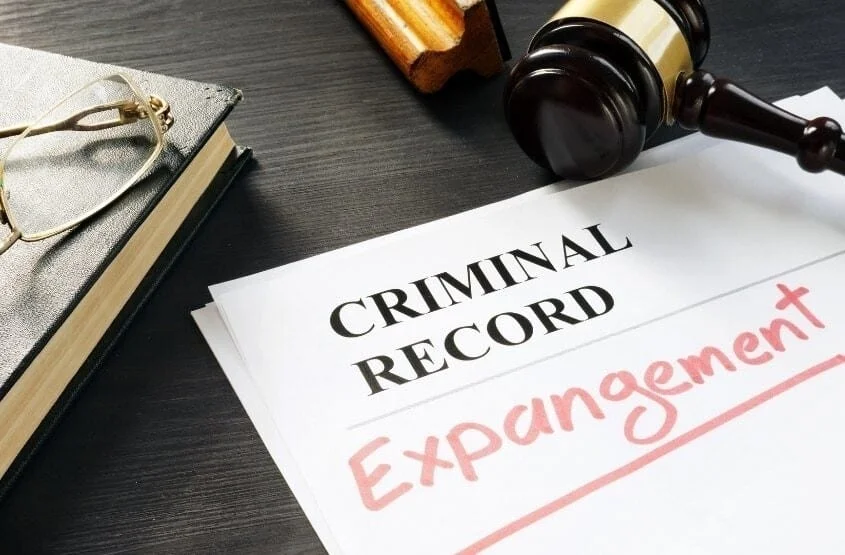
According to the Mexican Embassy, immigration authorities may deny you access to Mexico if you are subject to a criminal process or if you have been convicted of a serious crime defined by national laws on criminal matters.
Serious convictions include but aren’t limited to:
- Aggravated robbery
- Breaking prison
- Corruption or exploitation of minors
- Druck trafficking
- Manslaughter
- Public disturbances
- Vehicular theft
You can find the full list of what’s considered a serious crime according to Mexico on Embamex’s website .
Can Registered Sex Offenders Enter Mexico?
Registered sex offenders are allowed entry to Mexico. U.S. sex offenders must report international travel plans at least 21 days prior to leaving and before terminating their U.S. residence, according to the Simmrin Law Group.
If you are a registered sex offender in the U.S. with plans to travel internationally to Mexico, you must submit the following to your local sex offender registry.
- Anticipated itinerary
- Name of each country to be visited.
- Dates and place of departure from the U.S.
- Dates and places of arrival or return to the U.S.
- Airline and flight numbers.
- Address and other contact information while abroad.
- Means and purpose of the international journey.
Failing to notify the appropriate authorities before leaving for Mexico is a federal crime that’s punishable by up to 10 years in prison.
See also: Mexico Travel Insurance: Is It Worth It
Can You Travel to Mexico if You Have a DUI?
You can travel to Mexico if you have a basic misdemeanor DUI. Per the Mexican Consulate, serious crimes include all crimes that significantly and negatively affect a society’s fundamental values. Hence a DUI or DWI charge would not be enough of a reason for Mexico to deny you entry.
That said if you were charged with a more serious DUI that resulted in a felony because you have multiple DUIs, you seriously injured someone, or you caused a fatal accident, you could be denied entry to Mexico.
Can You Travel to Mexico While on Probation?
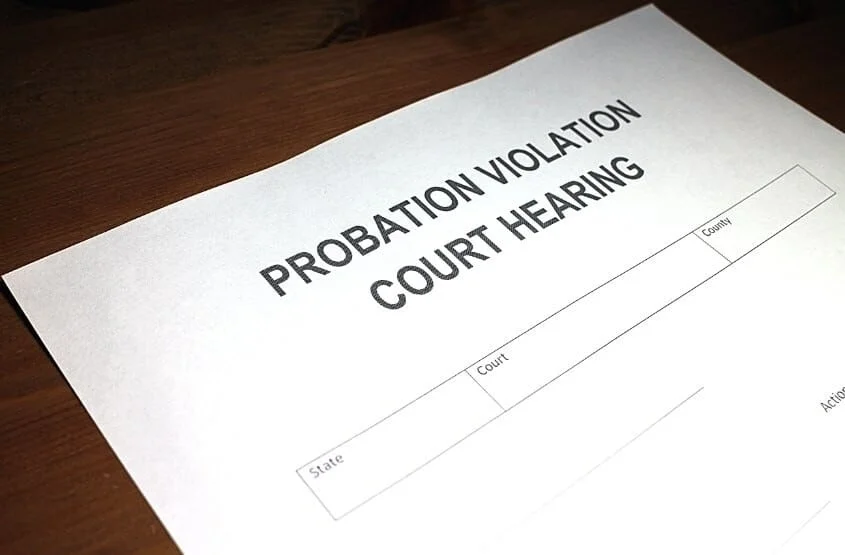
If your probation officer approves, you can travel to Mexico while on probation. You will need to provide specific details, including the destination, airline, flight numbers, exact travel dates, and a reason for traveling, among other things. Also, if authorized, you will most likely have to maintain continued contact with your PO during your trip.
Do Countries Share Criminal Records with Mexico?

Understandably, those with a criminal record or someone who is currently subject to the criminal process may be concerned if other countries, such as the US or Canada, share criminal record history with Mexico.
Here are some known facts provided by INTERPOL .
Mexico, the US, Canada, and an additional 191 countries currently share criminal data via The International Criminal Police Organization (INTERPOL). Immigration authorities may use the INTERPOL database to provide information in real time, allowing officials to detain or deny criminals on the spot.
That being said, it’s truly difficult to know if you will be allowed access to Mexico when traveling with a criminal record. But don’t give up hope just yet!
Who to Talk to Before Traveling to Mexico With a Record?
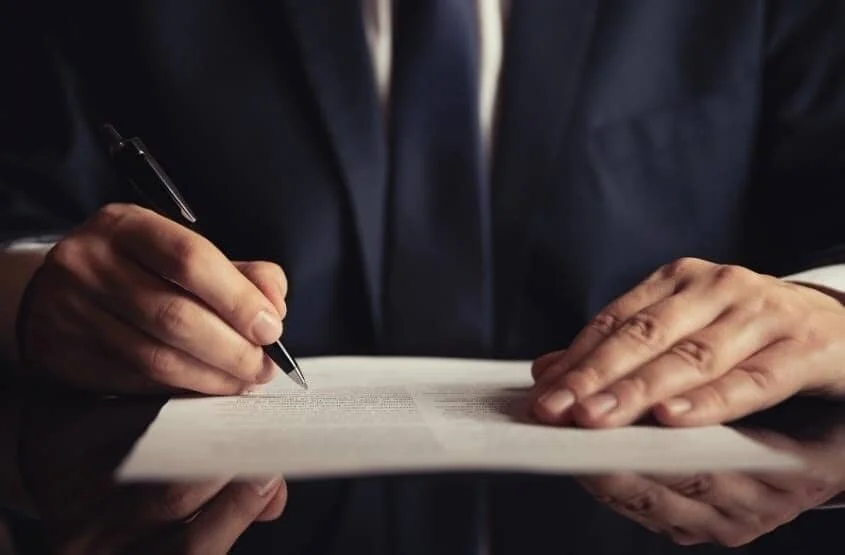
Trying to figure out who to contact about your criminal background before traveling to Mexico can be confusing. However, there are a few places where you can seek more information that may be able to help you make the right decision.
See also: Top Mexico Travel Tips To Know For A First-Timer
Contact your local Mexican consulate for advice and information regarding your criminal record. You may be able to find out if your record has been shared with the Mexican authorities or not. Also, it advised that you speak with a criminal defense attorney for further info regarding your situation.
The only other option is to take a leap of faith and pray that you are able to cross the border into Mexico with minimal issues. If you have contacted all the proper sources and you still don’t have an answer, it’s up to you to determine if the risk is worth the potential reward.
If I had to make the choice personally, I’d at least try. You’ll never know if you don’t try. Again, this is just my personal opinion and not legal advice .
Do your best to make the most educated decision when deciding whether you should travel to Mexico with your criminal record.
Here are some other things you may want to consider:
- Can you afford any legal fees you may need to pay for speaking with an attorney?
- Are you okay with potentially losing money if you aren’t able to enter Mexico?
- Are you traveling with friends or family who would need to cancel their trip as well if you couldn’t enter? OR would they be okay traveling into Mexico without you?
- Will you be able to get back home?
Once you have answered all these questions honestly, you’re one step closer to deciding if you should risk traveling to Mexico or not.
Conclusion – Is Traveling to Mexico With A Criminal Record Worth It?

Ultimately, when trying to decide if traveling to Mexico is worth the risk of being rejected, you need to be honest with yourself and gather as much information as possible by using your resources, some of which I have provided in this article.
The best idea is to speak with an attorney if you can afford one, and possibly you may not even have to pay. Most attorneys offer a free consultation allowing you to decide if it’s worth pursuing or not. It’s a good idea to reach out and communicate your situation and see if it’s something they can help with.

Alex Gomez, the founder of Mexico Travel Buddy, combines his firsthand, on-the-ground experiences in Mexico with a personal connection to the country, fostered through his Mexican wife and numerous explorations. As a professional writer and avid travel enthusiast, his favorite destination remains anywhere within Mexico's diverse landscapes. His extensive travels have equipped him with a treasure trove of tips, tricks, and insights, which he enthusiastically shares with his audience. Alex's stories and photos on the website not only showcase his love for Mexico but also offer readers a deeply authentic and engaging perspective.
Read more by Alex Gomez
7 thoughts on “Can You Go to Mexico With a Criminal Record? Important Advice”
I appreciate you sharing this blog. Thanks Again. Really Great.
Thank you for the kind words Reggie. It’s my pleasure to share these articles. Let me know if there’s something you want me to cover and I’ll do my best to write about it.
Good post. I definitely love this website. Stick with it!
Thank you checking out the website Steve, very nice of you to say. I’ll keep doing my best!
I really like reading through a post that will make people think. Also, many thanks for permitting me to comment.
After I originally left a comment I appear to have clicked on the -Notify me when new comments are added- checkbox and from now on every time a comment is added I get four emails with the exact same comment. There has to be a way you can remove me from that service? Thanks! Vickie Raoul Floria
I was very happy to discover this web-site. I wished to thanks for your time for this terrific read!! I definitely appreciating every little of it and also I have you bookmarked to check out new stuff you blog post.
Leave a Comment Cancel reply
Welcome to mexico travel buddy.
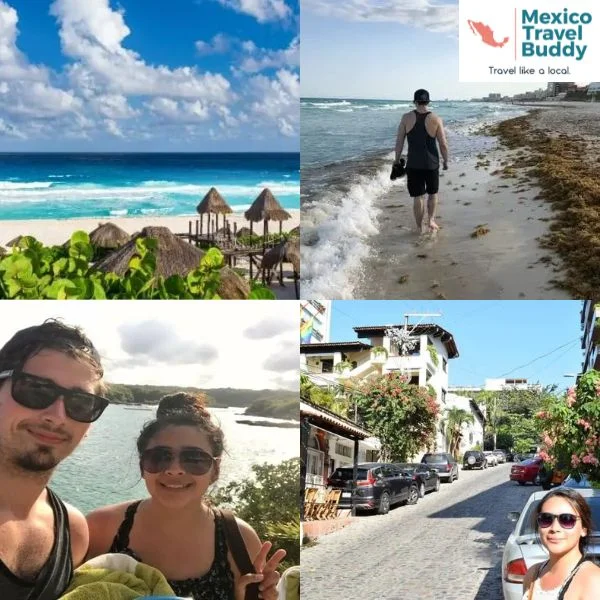
We are excited to help you make the most out of your travels to Mexico, in a safe and joyful manner!
We share our personal experiences and expert advice so you can travel Mexico like a local.
Find out more about our journey and our love for Mexico.
Follow us on our socials!
Looking for something or somewhere specific? We might just have it!
Travel Like A Local Where's Your Next Stop?
Recent Posts

San Ignacio Mexico Travel Guide
March 30, 2024

Everything You Need to Know About Punta Baja: The Sleepy Seaside Camp of Your Dreams

Pescadero Mexico Travel Guide

Mulege Baja California Travel Guide

IMAGES
VIDEO
COMMENTS
What countries can you travel to with a felony in Europe? For travel purposes, Europe is divided into two categories. Countries inside the Schengen Area and countries outside the zone. The Schengen Area currently includes 27 countries. U.S. passport holders enjoy visa-free access to the Schengen Area. Once you're inside the Schengen Area, you ...
With a felony conviction, you may be denied entry. Other nations that require a pre-entry visa are Brazil and India. The excellent news about Brazil and India, their visa application does not ask about a criminal record. So, a convicted felon can travel to these nations without fear of denying entry. Where to Apply for a Visa?
Having a criminal record makes international travel very difficult. Because most countries try to protect their citizens from outside criminal activities, they have strict laws about who can enter a particular country and who cannot. As a result, if you have a criminal record, you won't be allowed to enter most countries where you're required […]
The question of whether felons are allowed to travel to Brazil is a complicated one. There are a number of factors that need to be considered, including the type of felony and the country of origin. In general, felons are not allowed to enter Brazil. However, there are some exceptions. For example, if the felony is non-violent and the person has served their sentence, they may be allowed to ...
For families of felons who wish to travel to Brazil, it is important to encourage them to pursue this. Don't let them allow their mistakes from the past stop them from enjoying life again. Restrictions will be there regardless unless they have their record expunged. Help them travel to Brazil, assist them in the process, and encourage them to ...
Therefore, depending on its content, a criminal record will have significant importance in the process of getting a Brazilian visa. Therefore, a criminal record certificate will be required to check if a foreigner has served or still has to serve a sentence in their country of origin. The document must be issued by the competent authority from ...
The process of applying for a visa varies from country to country. Some countries do not allow people who have a felony on their criminal records to obtain a visa, so they are unable to visit. It is notable that the destination country may have different regulations regarding what constitutes a felony. This can impact the granting or denial of ...
The following is a list of countries that don't require a visa to visit so as long as you have a valid passport, they'll let you in. However, some of these countries do have laws stating that they don't allow felons so if it's discovered you have a felon, however rare, you could be denied entry. Austria. Belgium. Bulgaria.
Felons can travel outside the country after completing their sentence or post prison sentence such as probation or electronic monitoring. The fifth amendment protects your right to travel. A felony conviction may disqualify you from getting a visa. If you have completed your sentence, you may apply for a passport.
Call us in Washington, D.C. at 1-888-407-4747 (toll-free in the United States and Canada) or 1-202-501-4444 (from all other countries) from 8:00 a.m. to 8:00 p.m., Eastern Standard Time, Monday through Friday (except U.S. federal holidays). See the State Department's travel website for the Worldwide Caution and Travel Advisories.
Americans impacted by felony convictions can travel to foreign counties, but the logistics can be complicated. There are a number of factors that will be taken into consideration: Your ability to obtain a passport; The country you intend to visit and do they require a US citizen to obtain a visa; The type of crime you were convicted of; and, The length of your sentence.
0. Our organization, Help For Felons specializes in gathering the most up to date information regarding international travel for felons. This page is updated regularly with new articles about travel restrictions, changing laws and anything else travel related. Being a felon means that you need to pay close attention to not only US law but also ...
As a U.S. citizen, you have the right to travel within the country and to most international destinations. However, having a criminal record can impact your ability to travel to some countries, particularly for felony offenses and DUI charges. Some countries have strict immigration policies and may deny entry to people with certain criminal ...
Here are a few felonies that may prevent felons from obtaining a visa to travel to Brazil: carrying weapons, robbery, murder, fraud, and drug trafficking, according to the Brazilian government. Otherwise, once the terms of probation have been fully completed, obtaining a visa to travel to Brazil isn't considered difficult.
Travel Restrictions for Convicted Felons European Union Austria Entry/Exit Requirements: Austria is a party to the Schengen agreement. As such, U.S. citizens may enter Austria for up to 90 days for tourist or business purposes without a visa. The passport should be valid for at least three months beyond the period of stay.
Travelers with criminal records—particularly those with felonies or serious crimes—should still check with the embassy or consulate of the E.U. country they're planning to enter to make sure ...
Further information on travelling to South Africa can be found here. Travel to the Americas Argentina. If you're a British passport holder, travelling for less than 90 days, you won't need a visa to travel to Argentina. Brazil. If you're a British passport holder, travelling for less than 90 days you won't need a visa to visit Brazil.
Cruises are trendy vacation activities in North Atlantic countries like Ireland, Denmark, and Norway. This may make felons wonder if they can go on cruises. The answer is usually yes. Felons eligible to fly and leave the United States will also be eligible to go on cruises. Cruises can be excellent options for felons who cannot obtain passports.
A felony conviction can restrict your ability to travel. A few countries prohibit entry for people convicted of a felony, while others grant restricted access. However, when it comes to traveling with a criminal record, there are still countries felons can visit. In general, European countries have less strict rules than the US and Canada.
Yes, a registered sex offender can leave the United States to travel internationally. There is nothing under U.S. law that forbids them from traveling abroad. However, some countries will refuse entry to a registered sex offender. The refusal may be based on the registration. However, it is more likely to be based on the registrant's criminal ...
If you intend to travel to Italy for short trips starting from 2025 and are from one of the eligible countries, you will need to apply for an ETIAS visa waiver. The application is very straightforward and is designed to only take minutes. You can apply online from anywhere in the world as long as you have access to a reliable internet ...
The Mexican Embassy says you will be denied entry if you have been convicted of serious crimes such as murder, terrorism, and drug trafficking. Obviously, traveling to Mexico with a criminal record can be a huge risk for felons. Here are a few potential outcomes. Mexico may allow your entry to the country. Mexico may deny your entry.